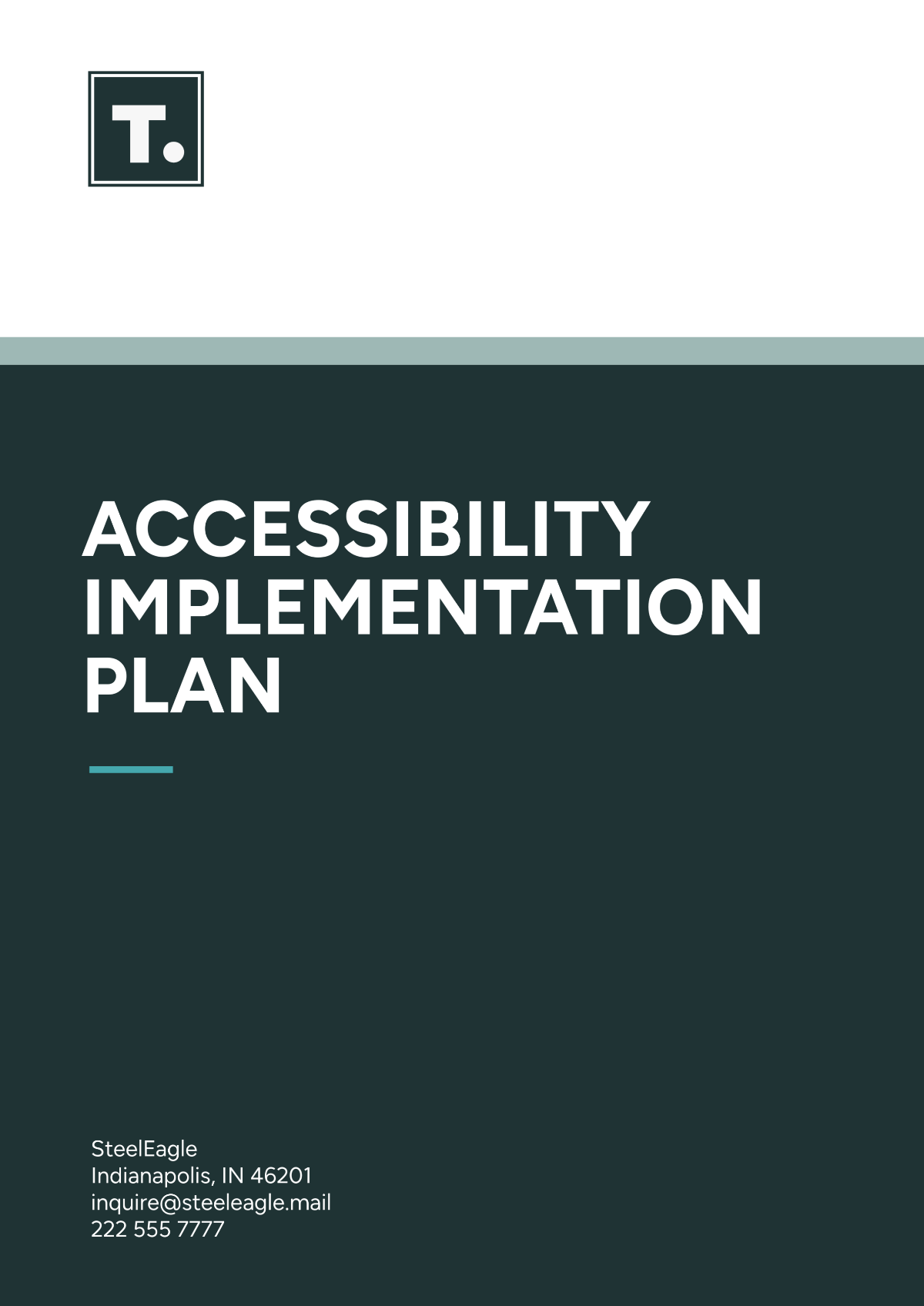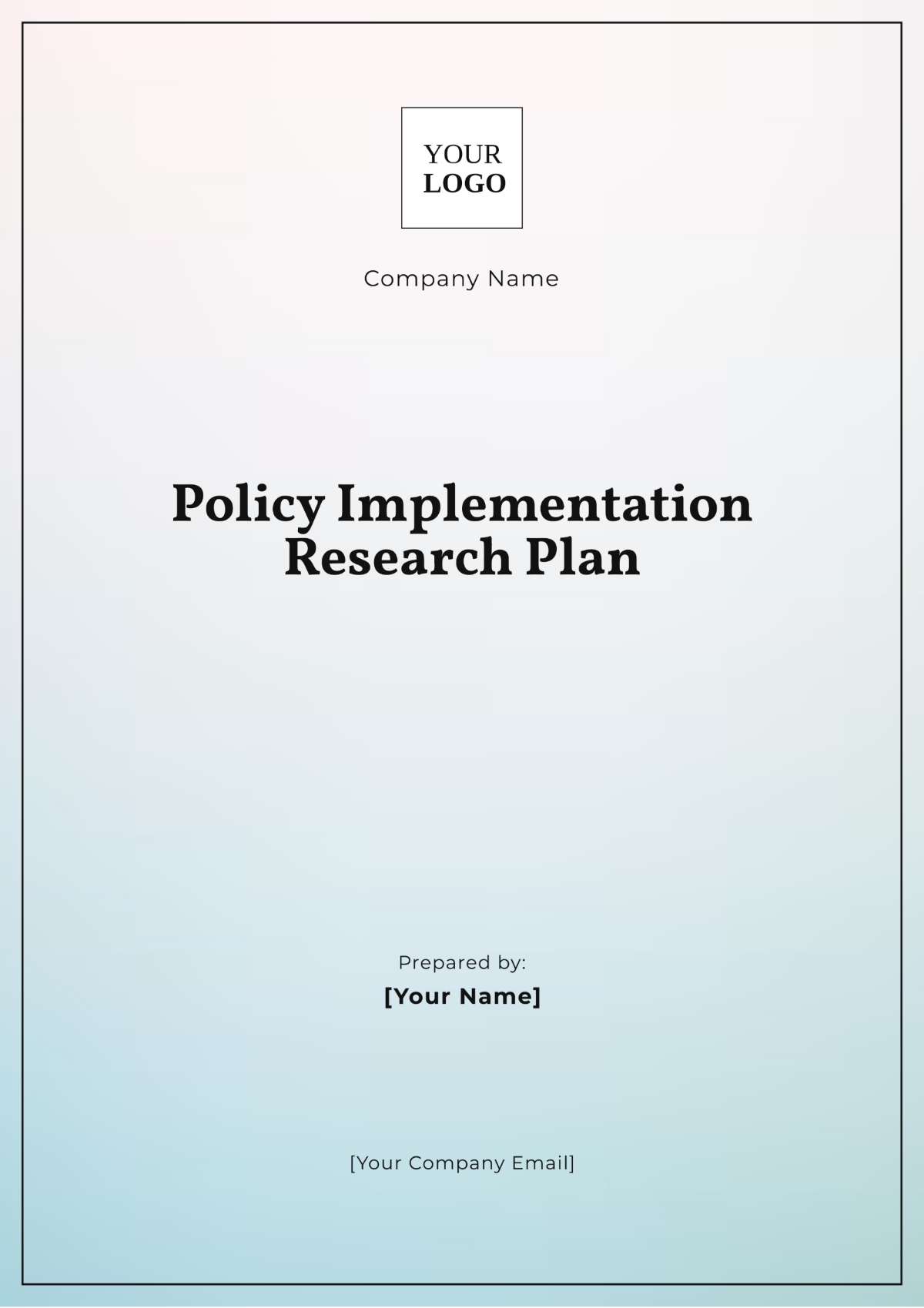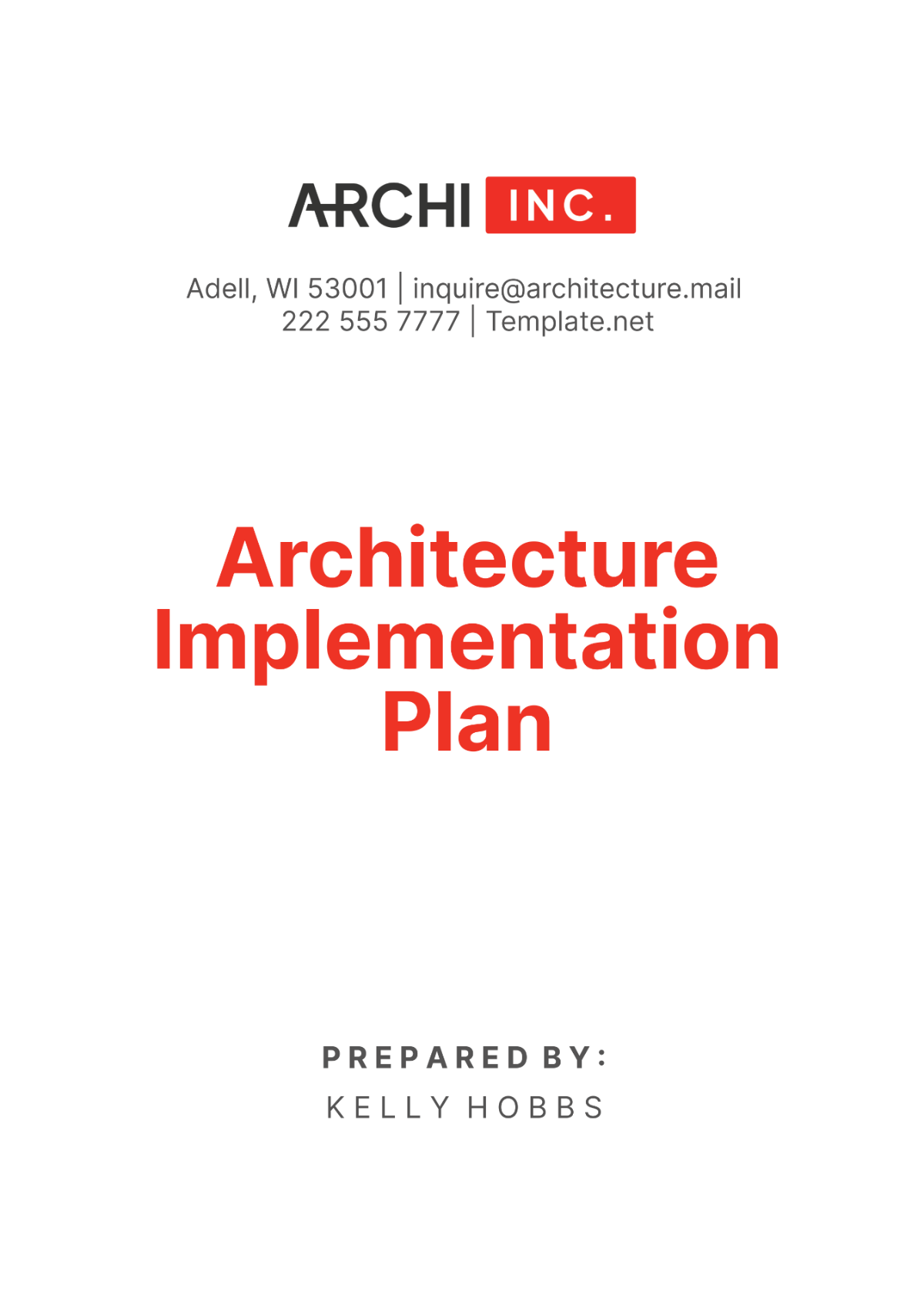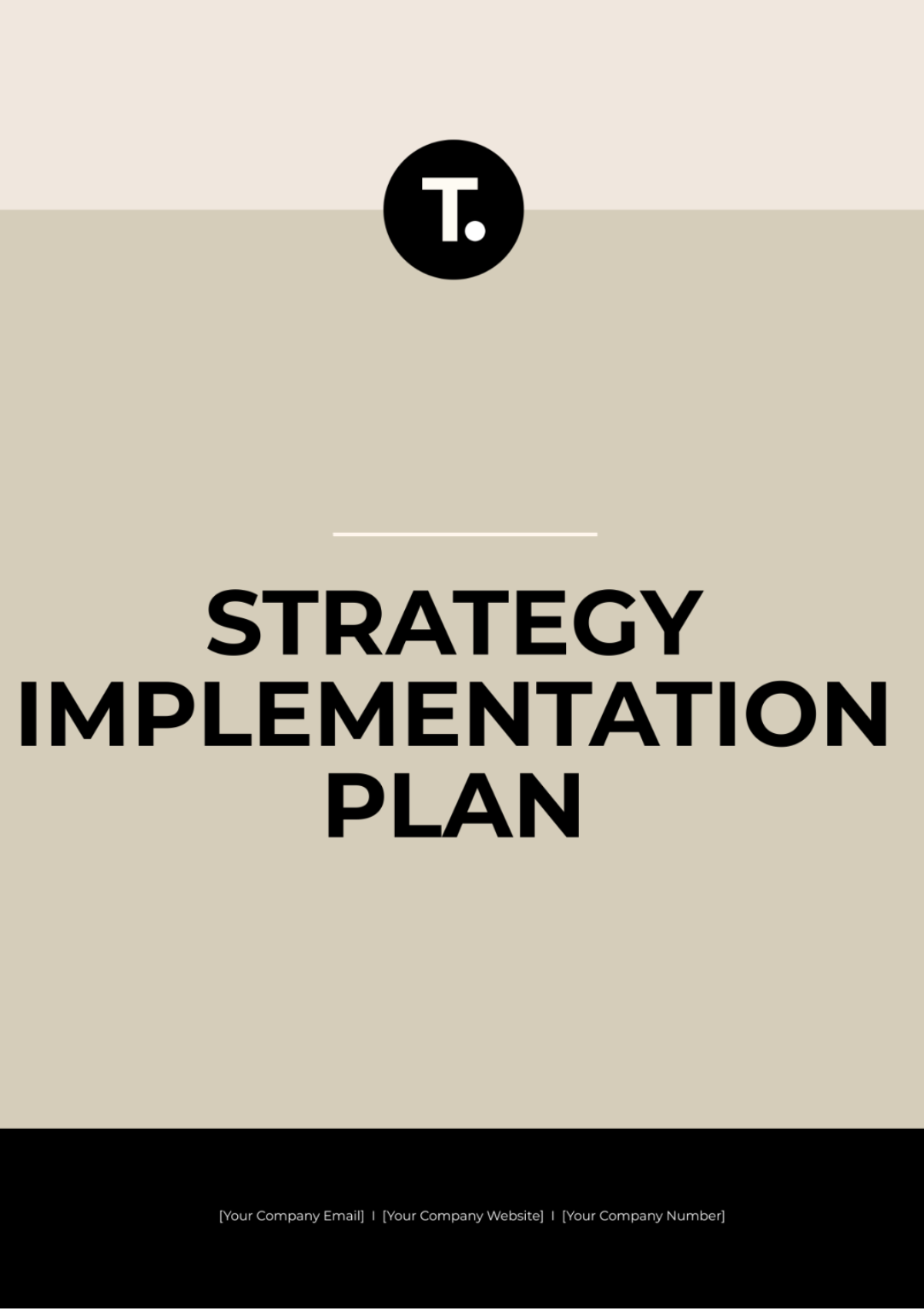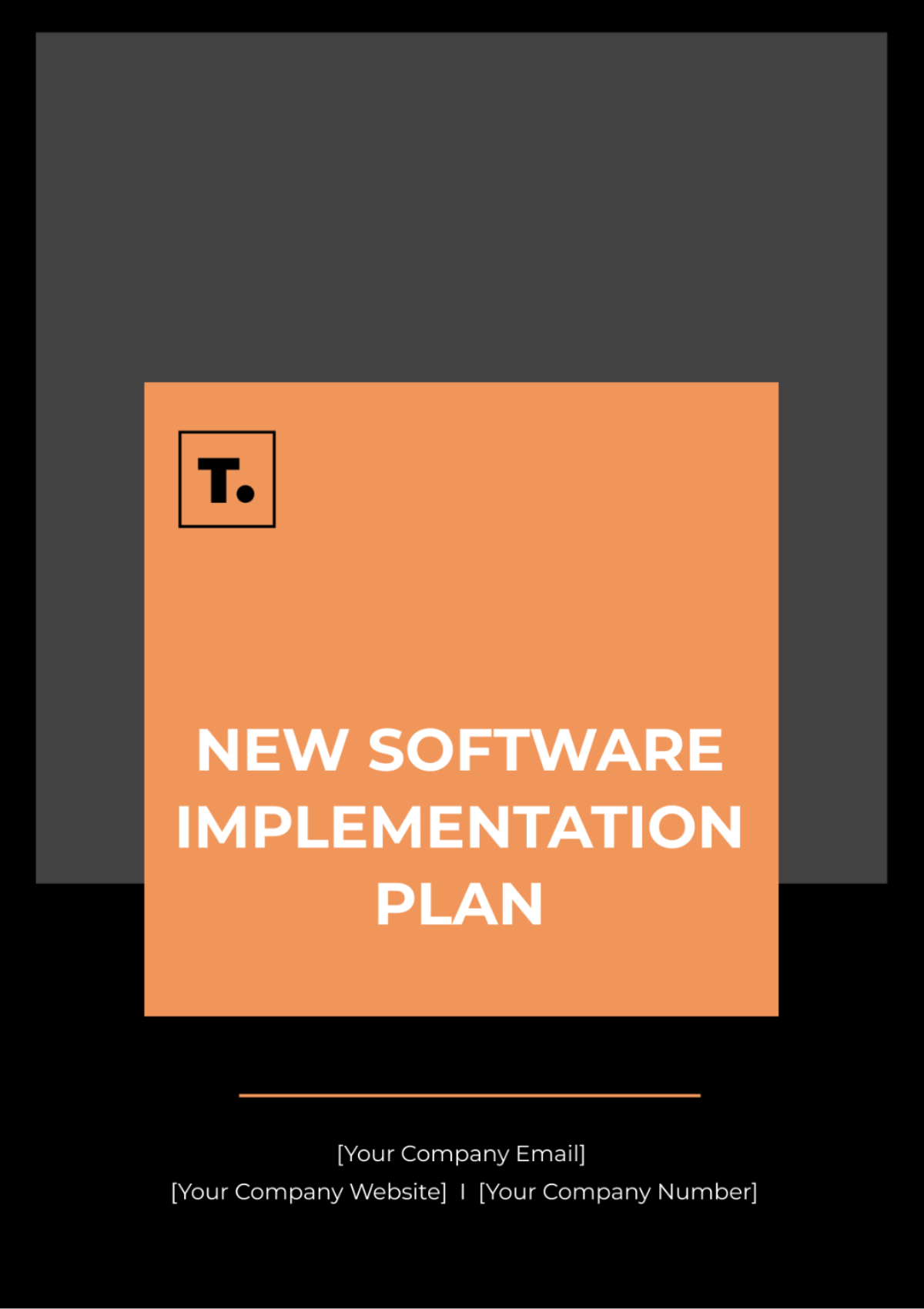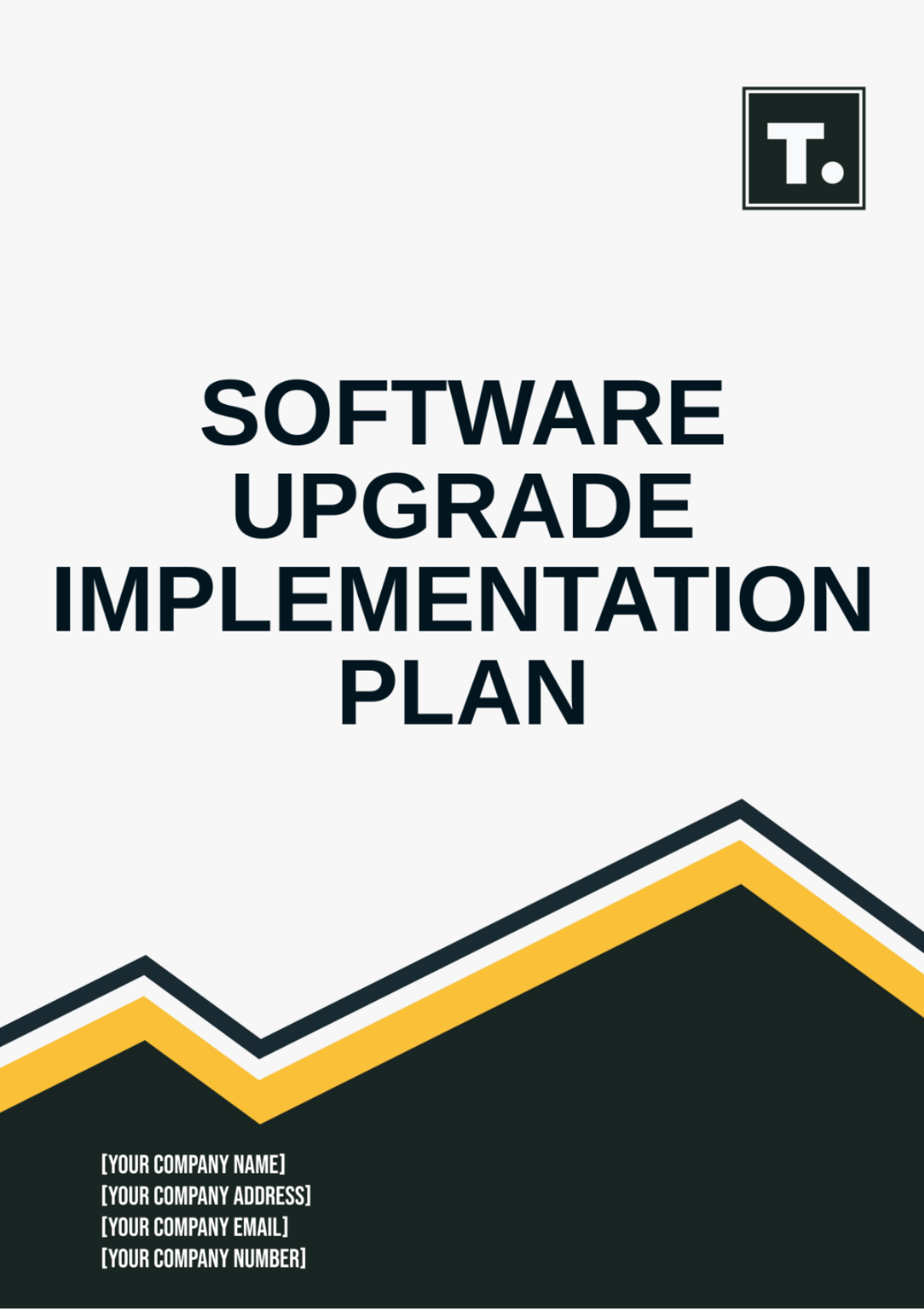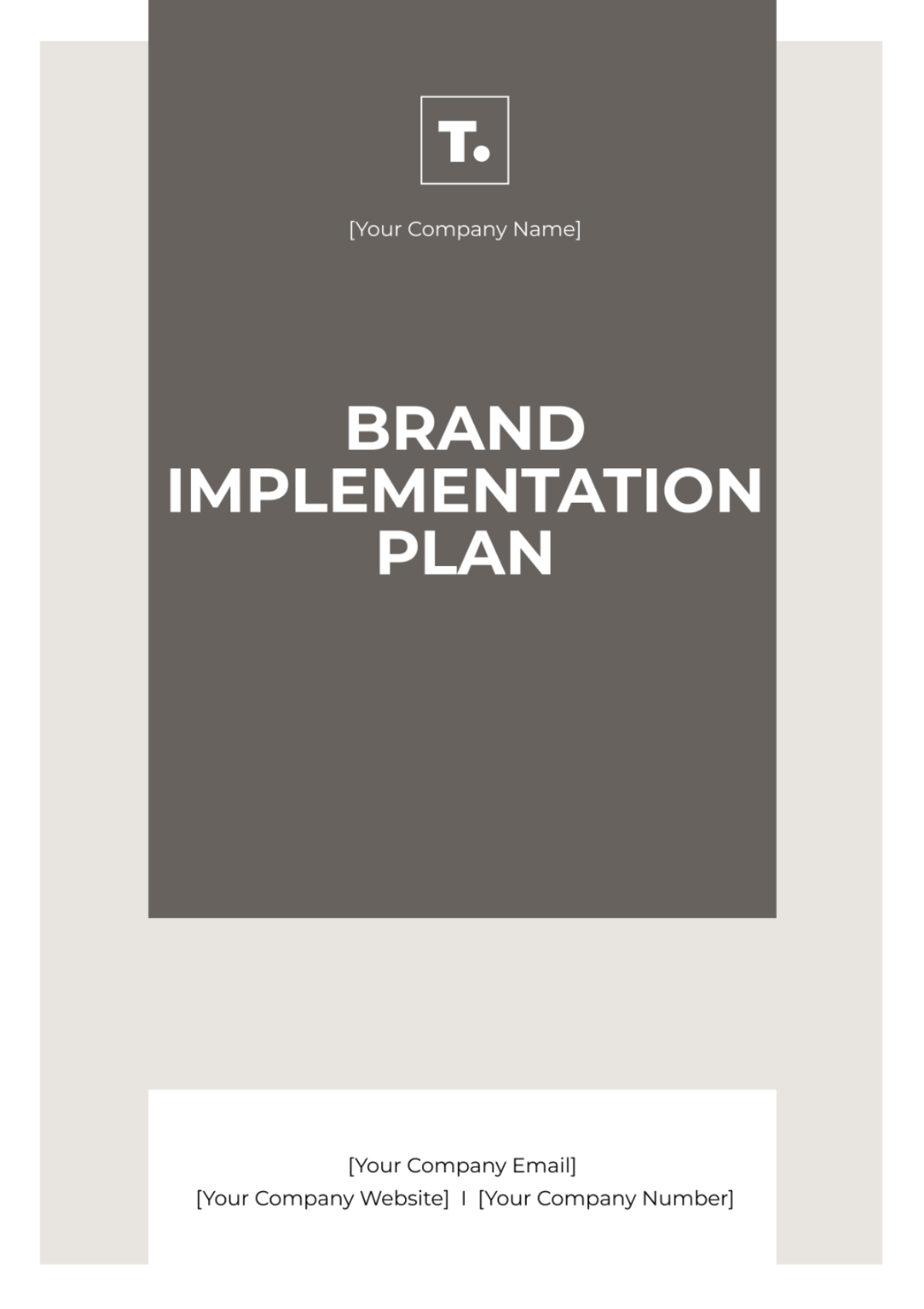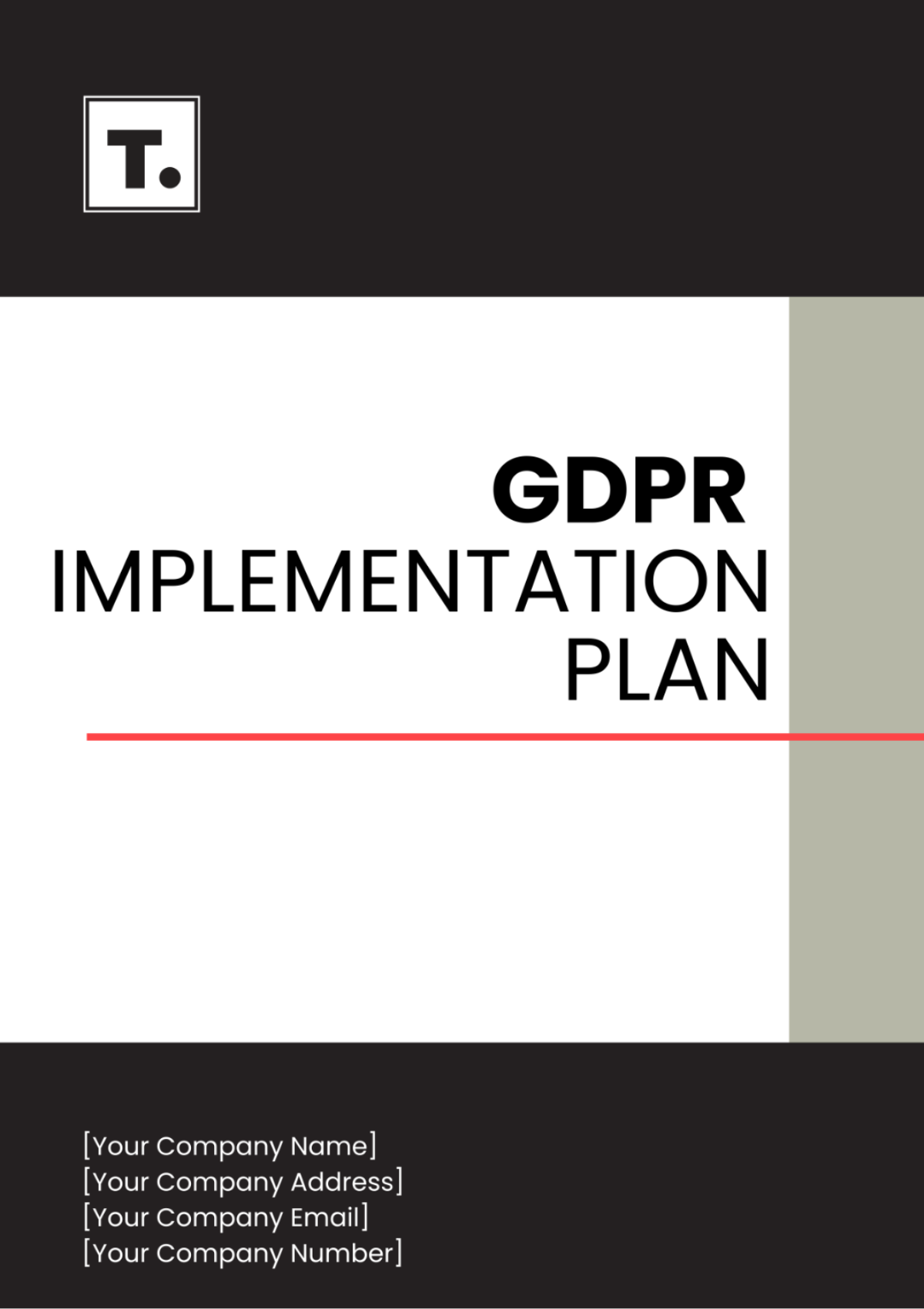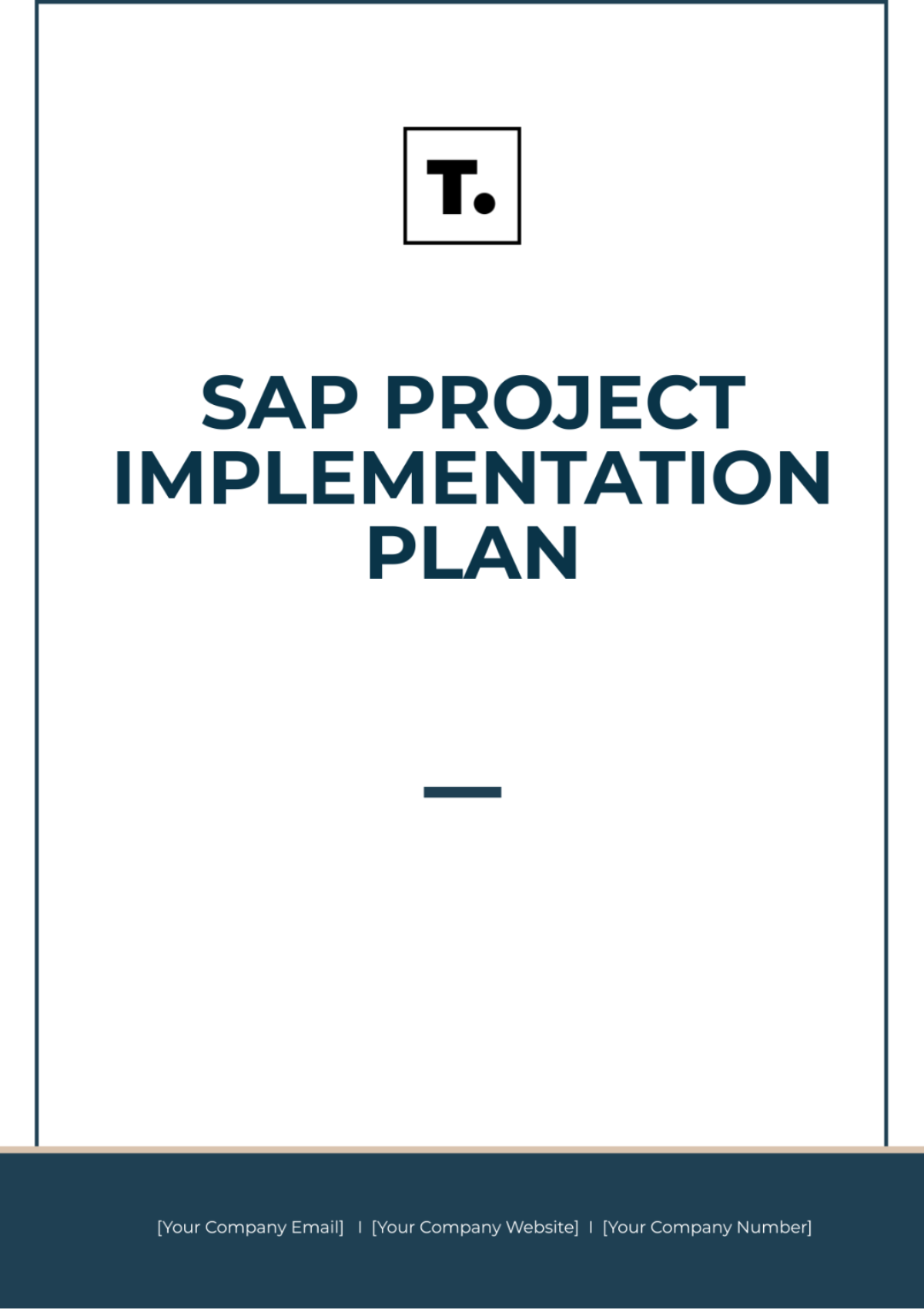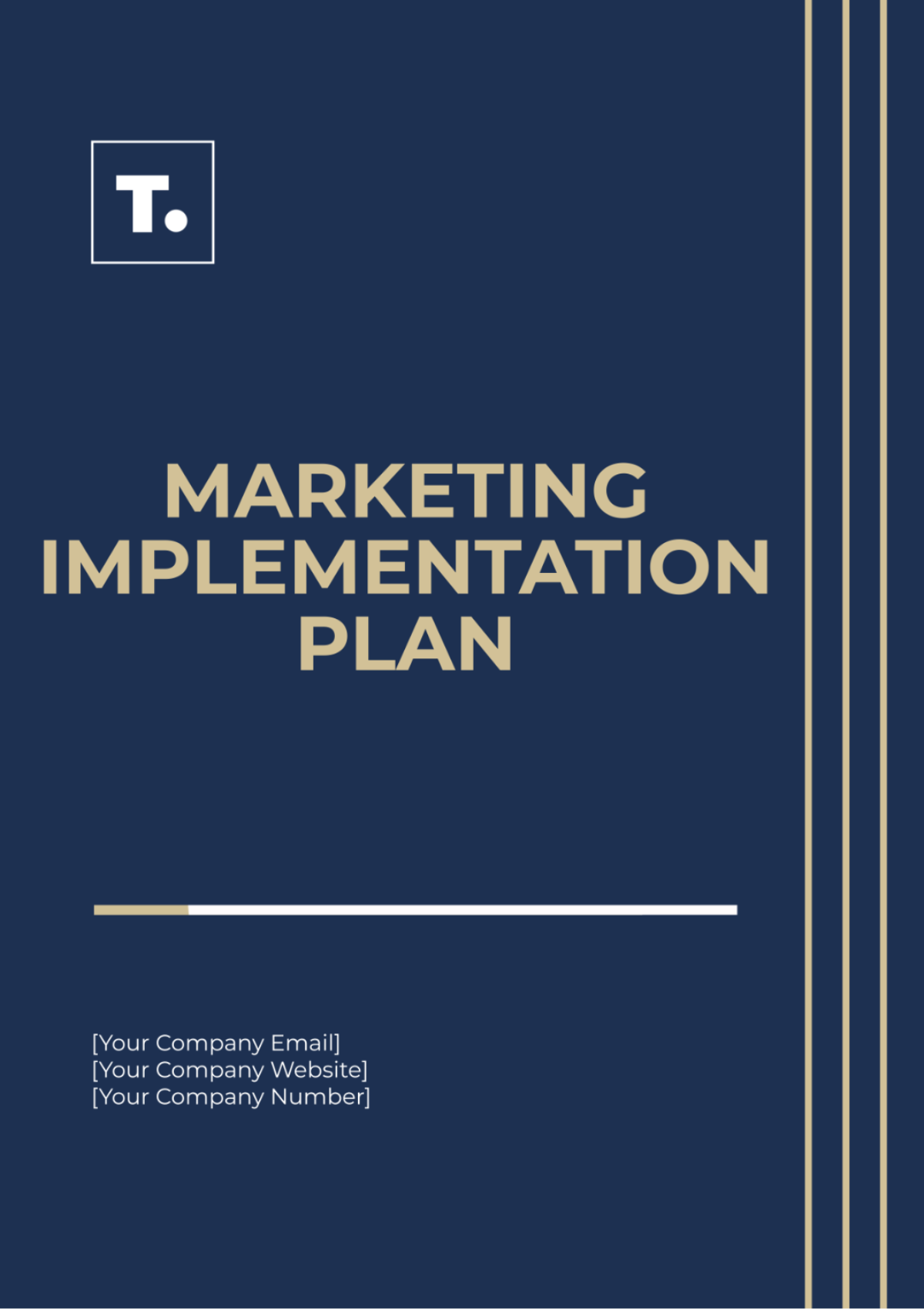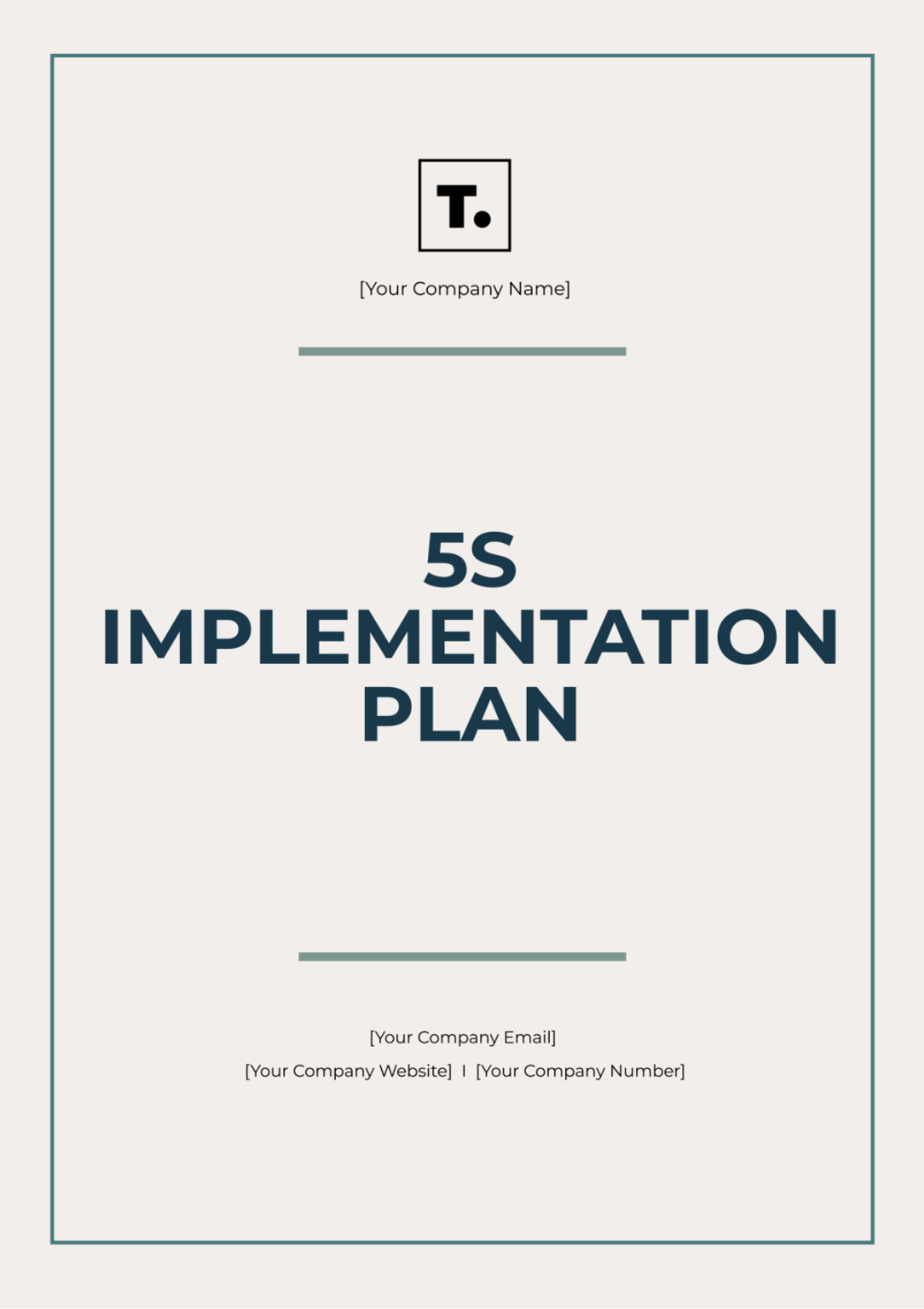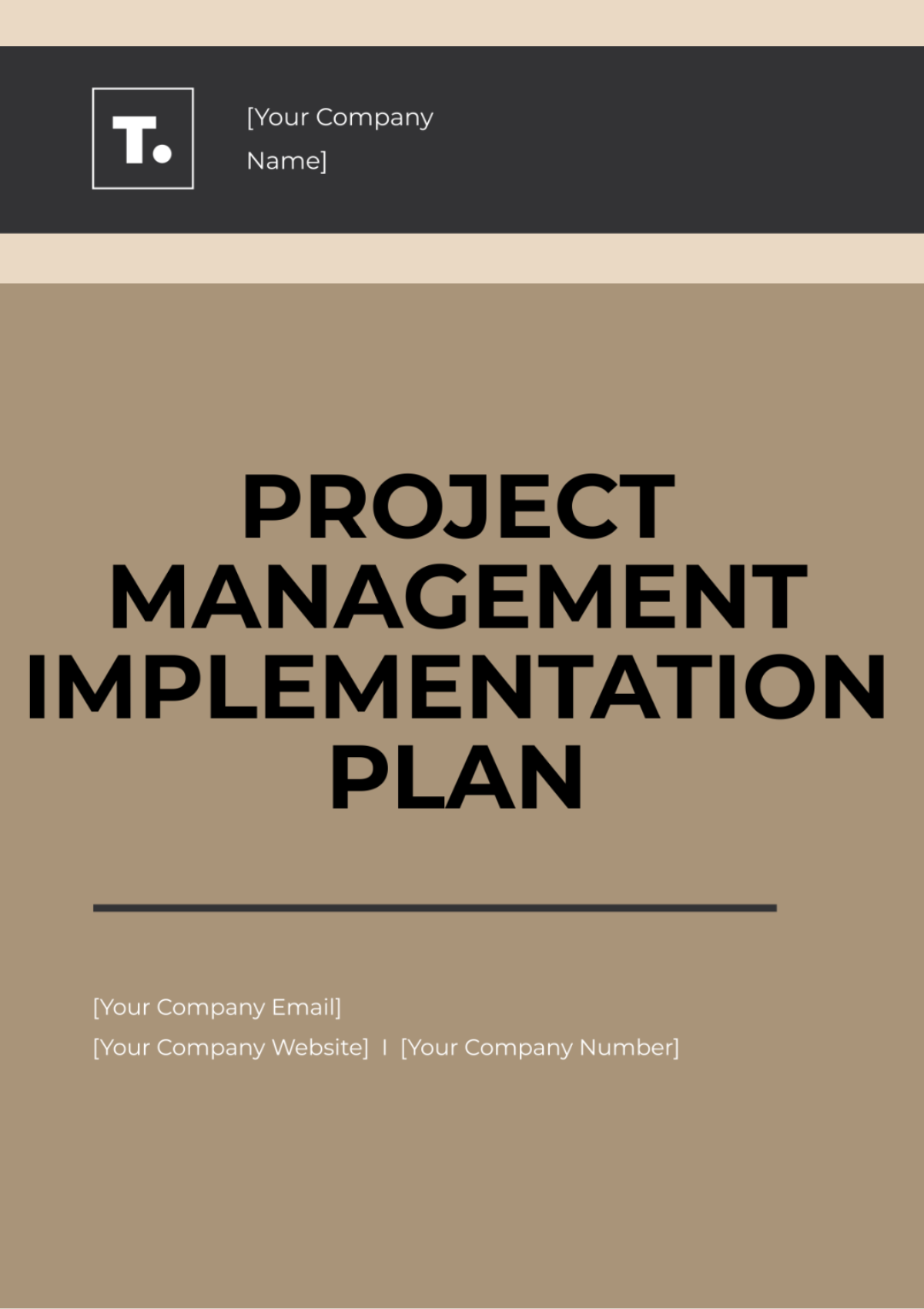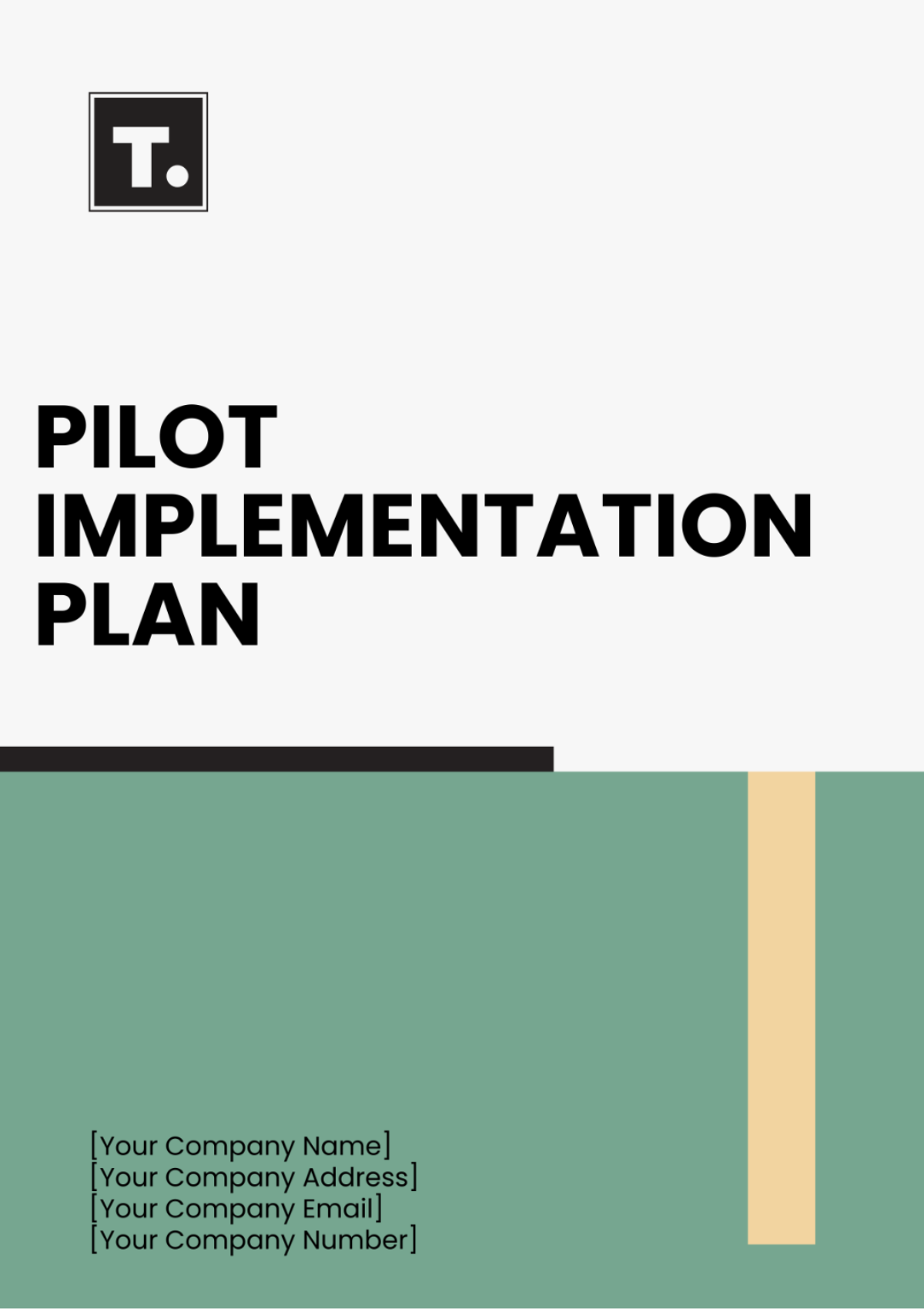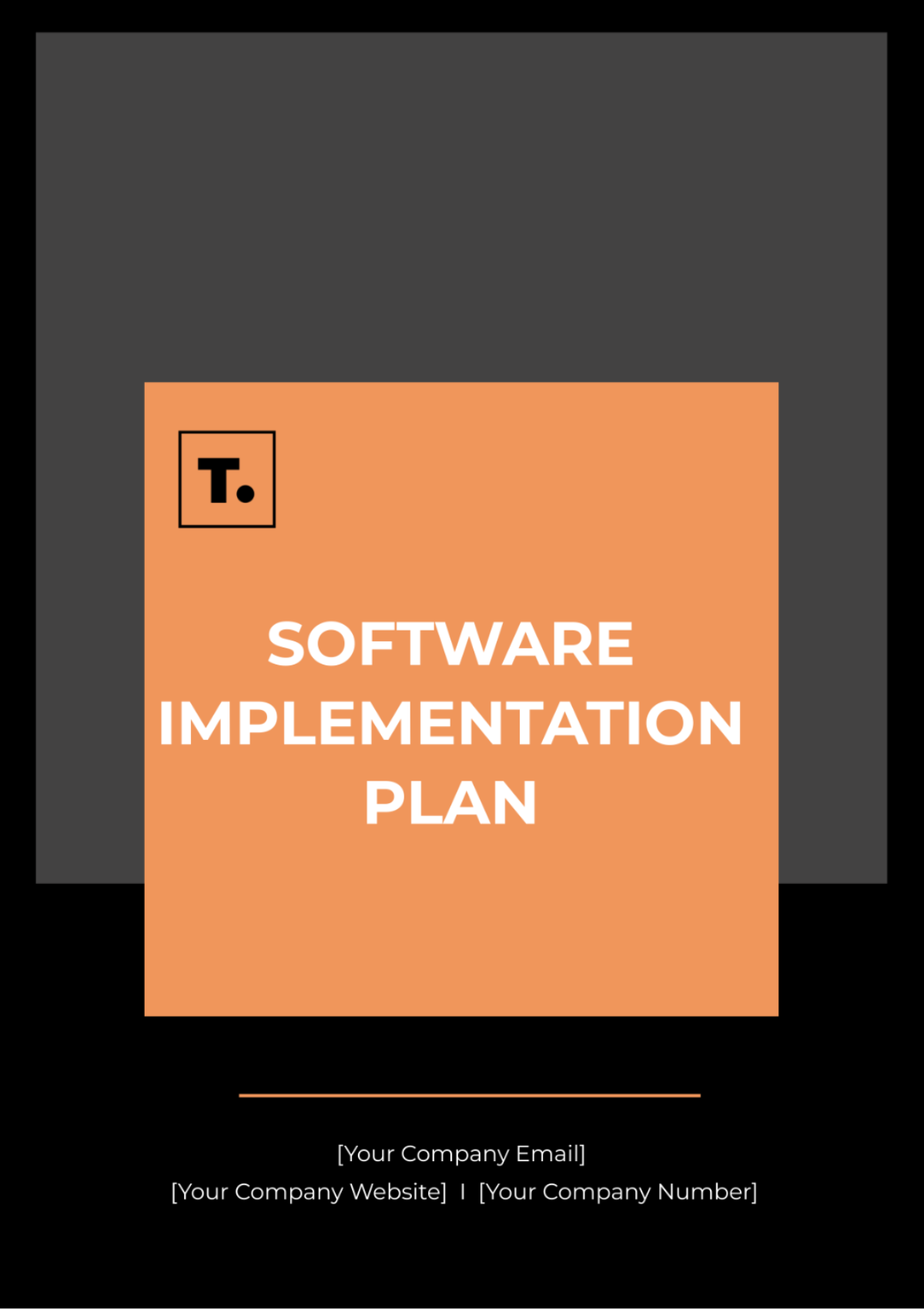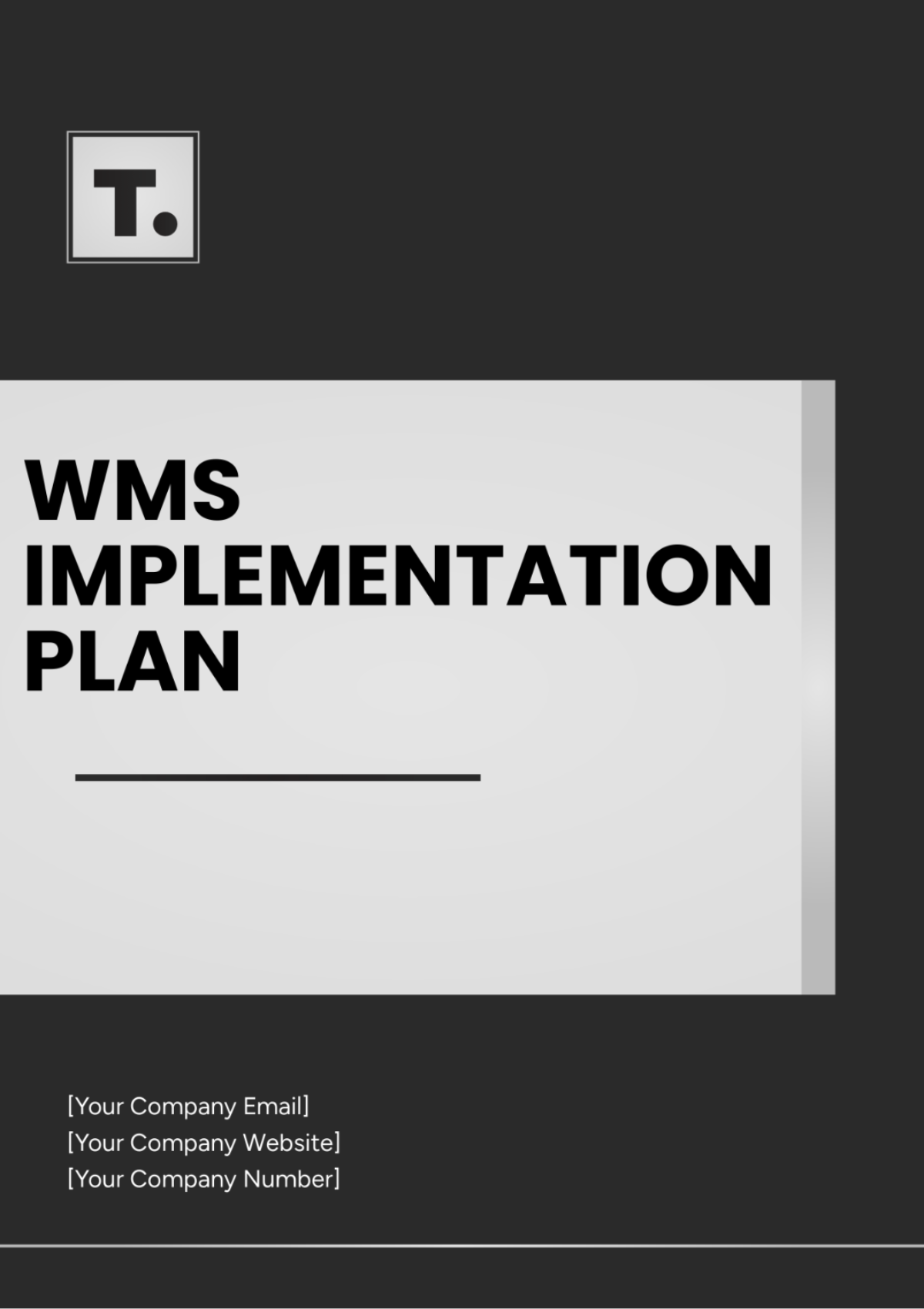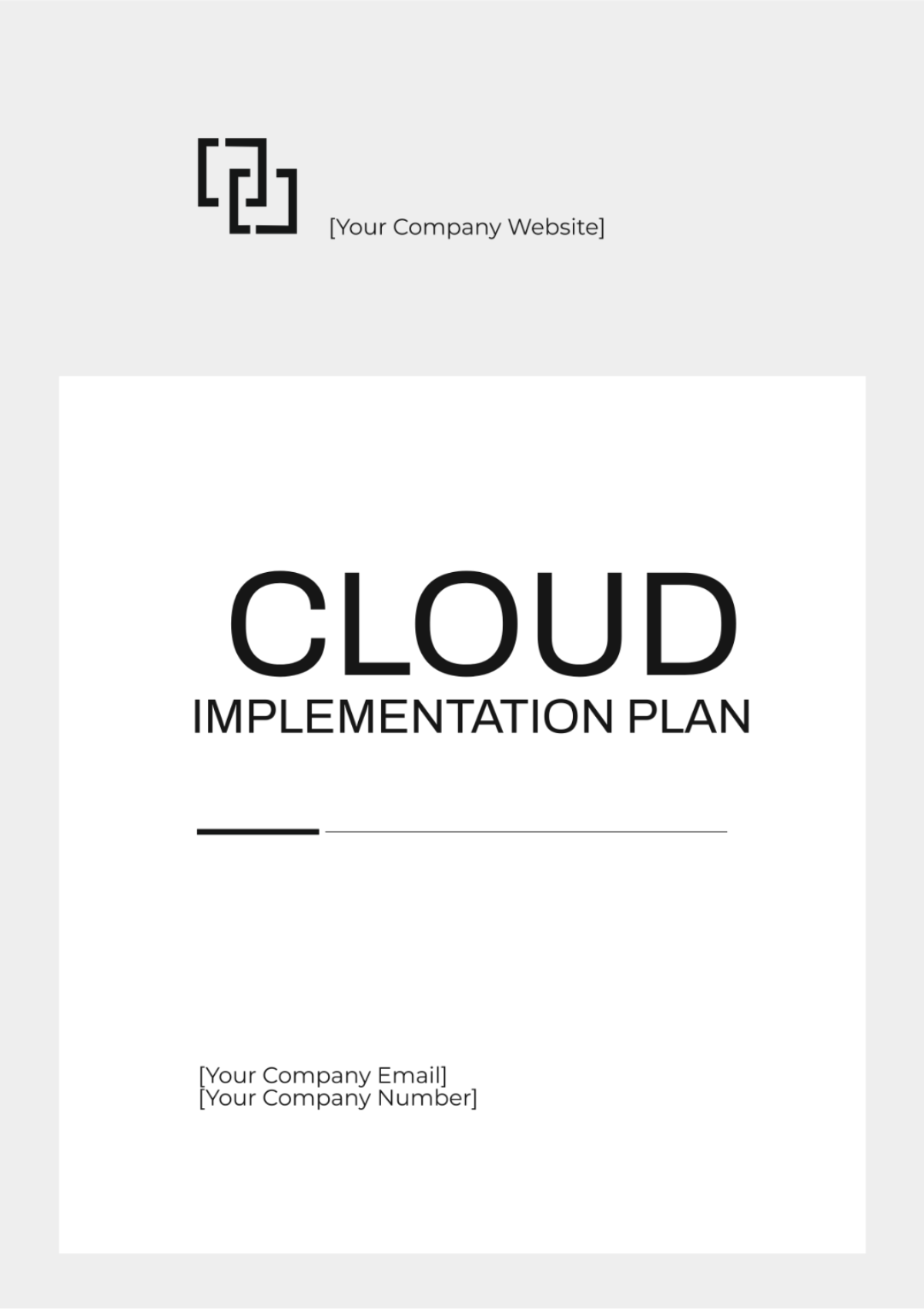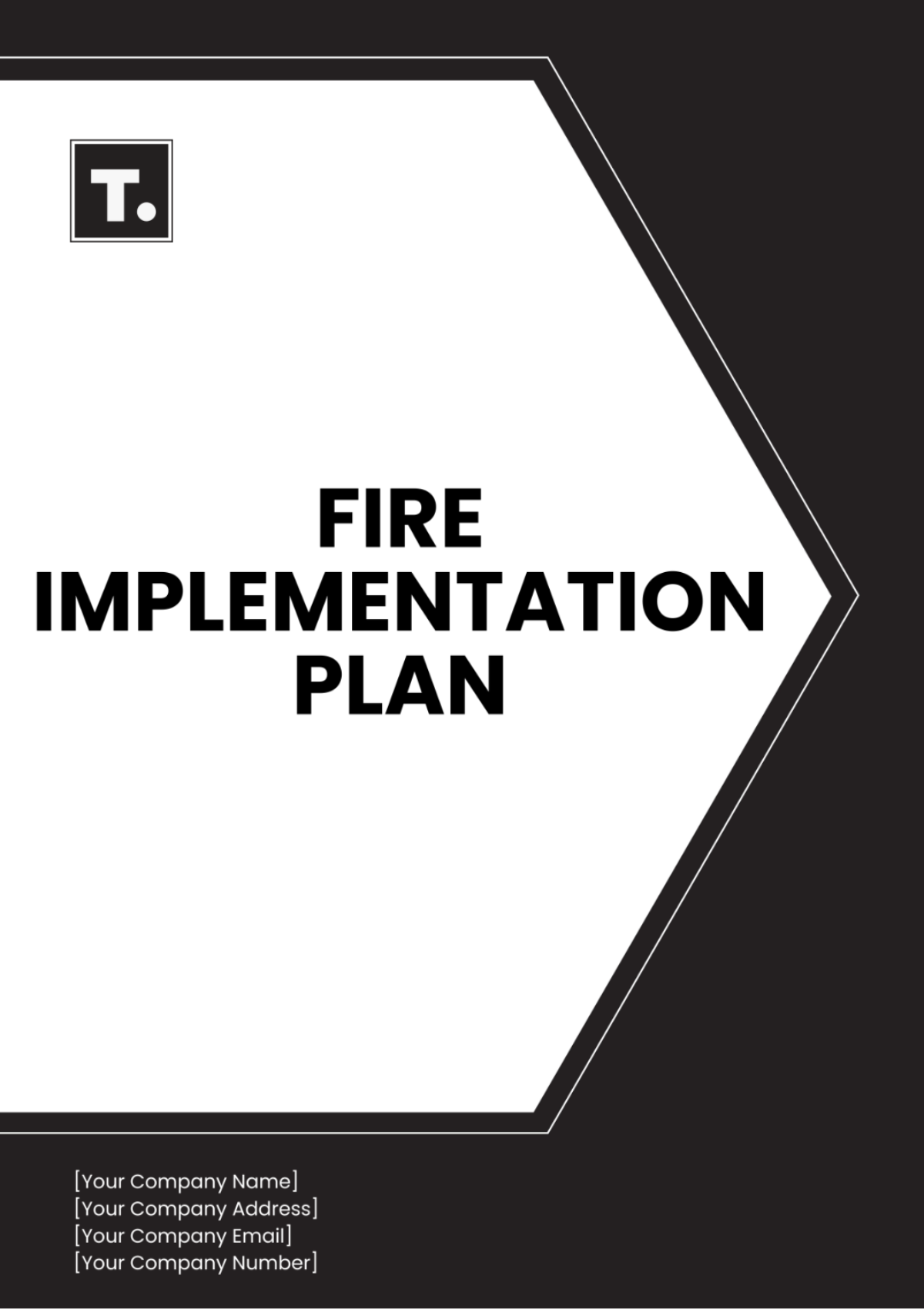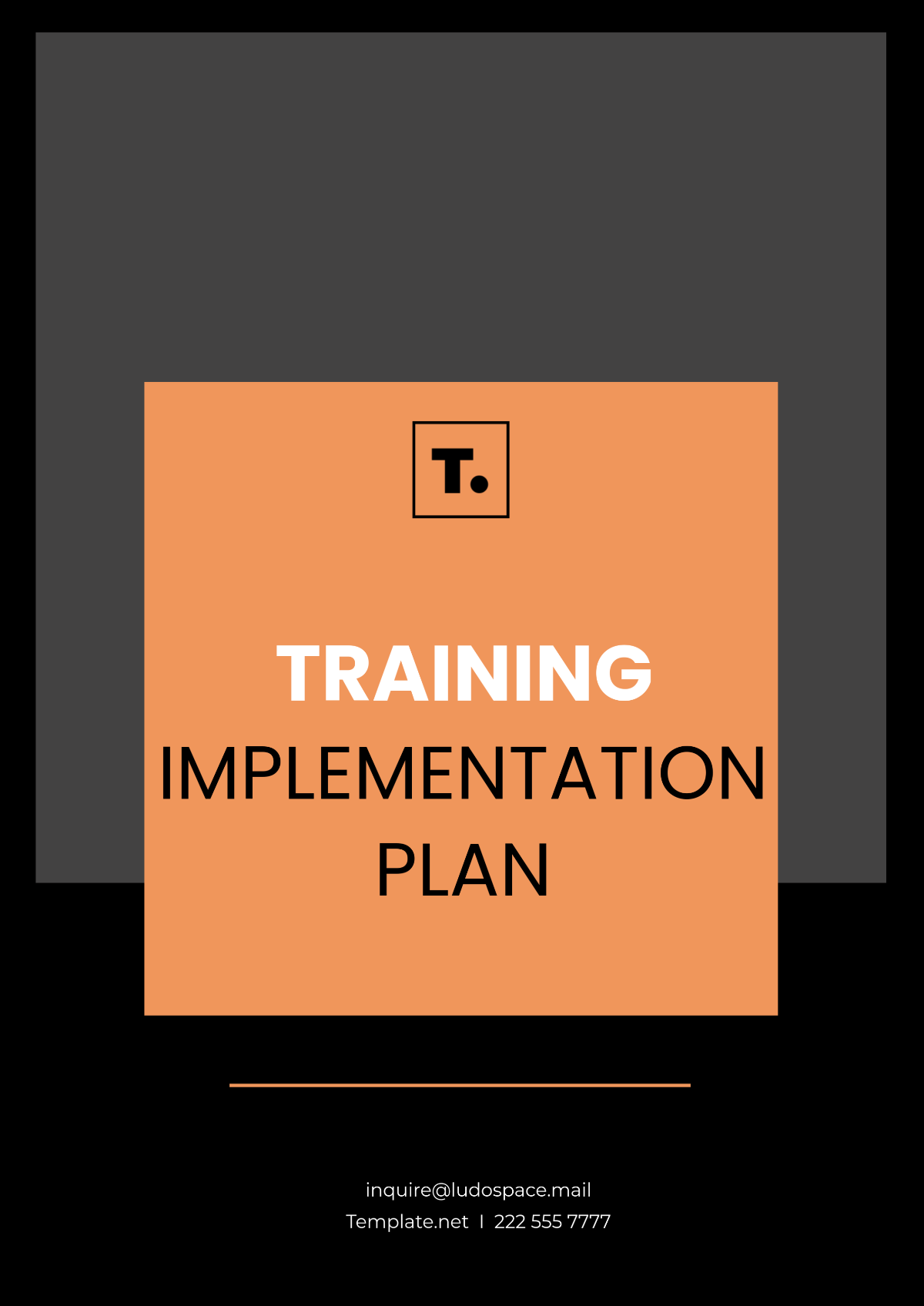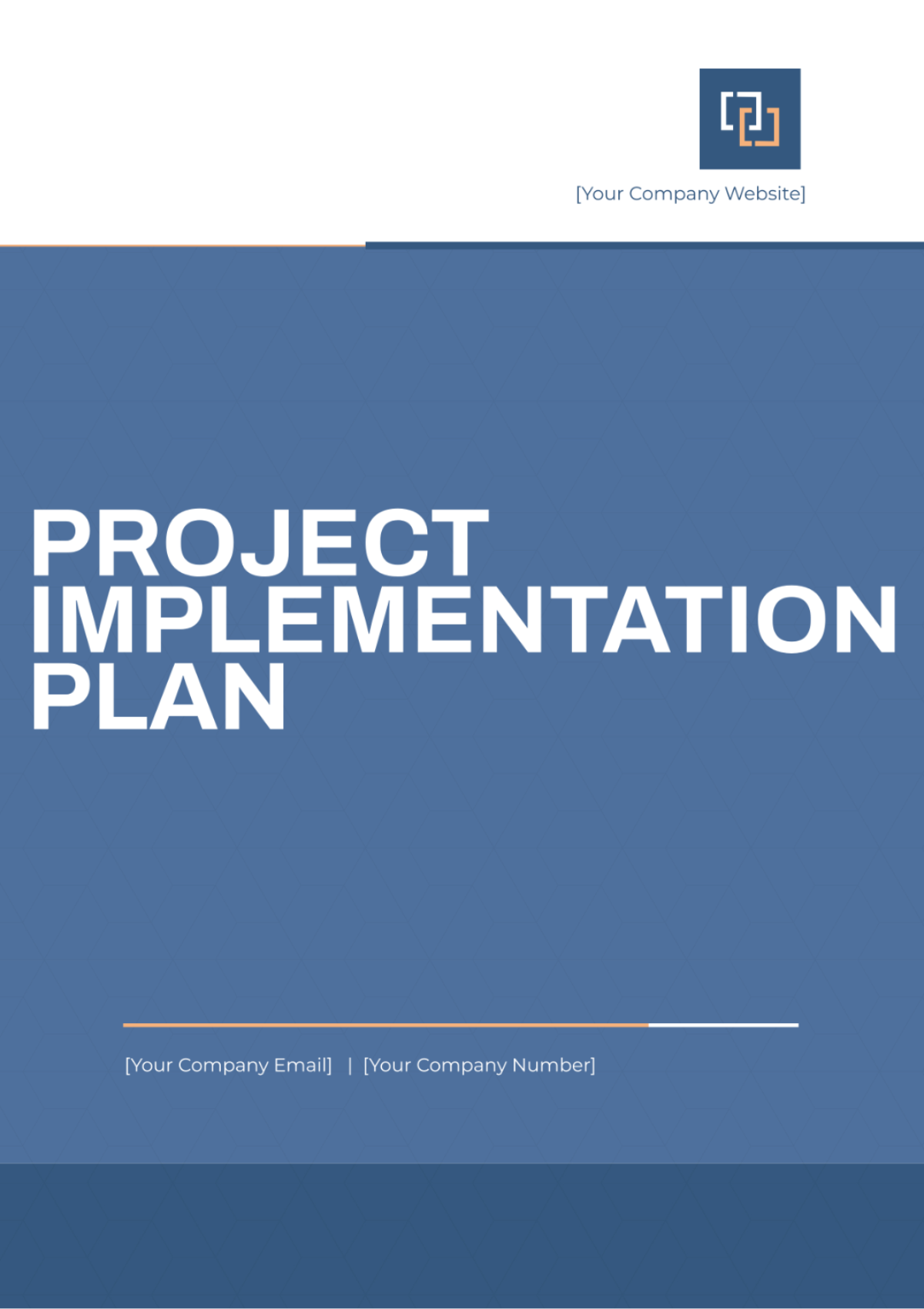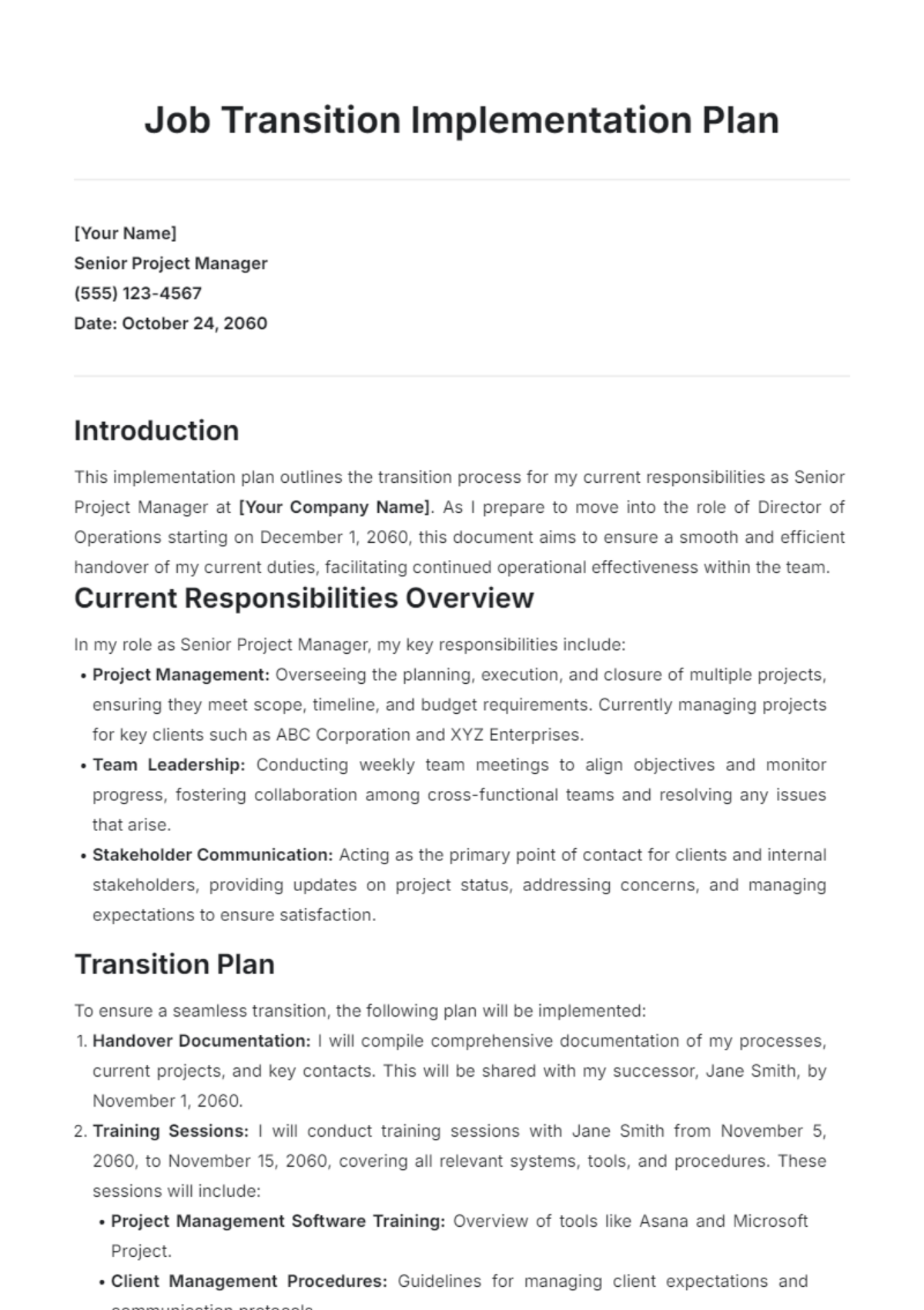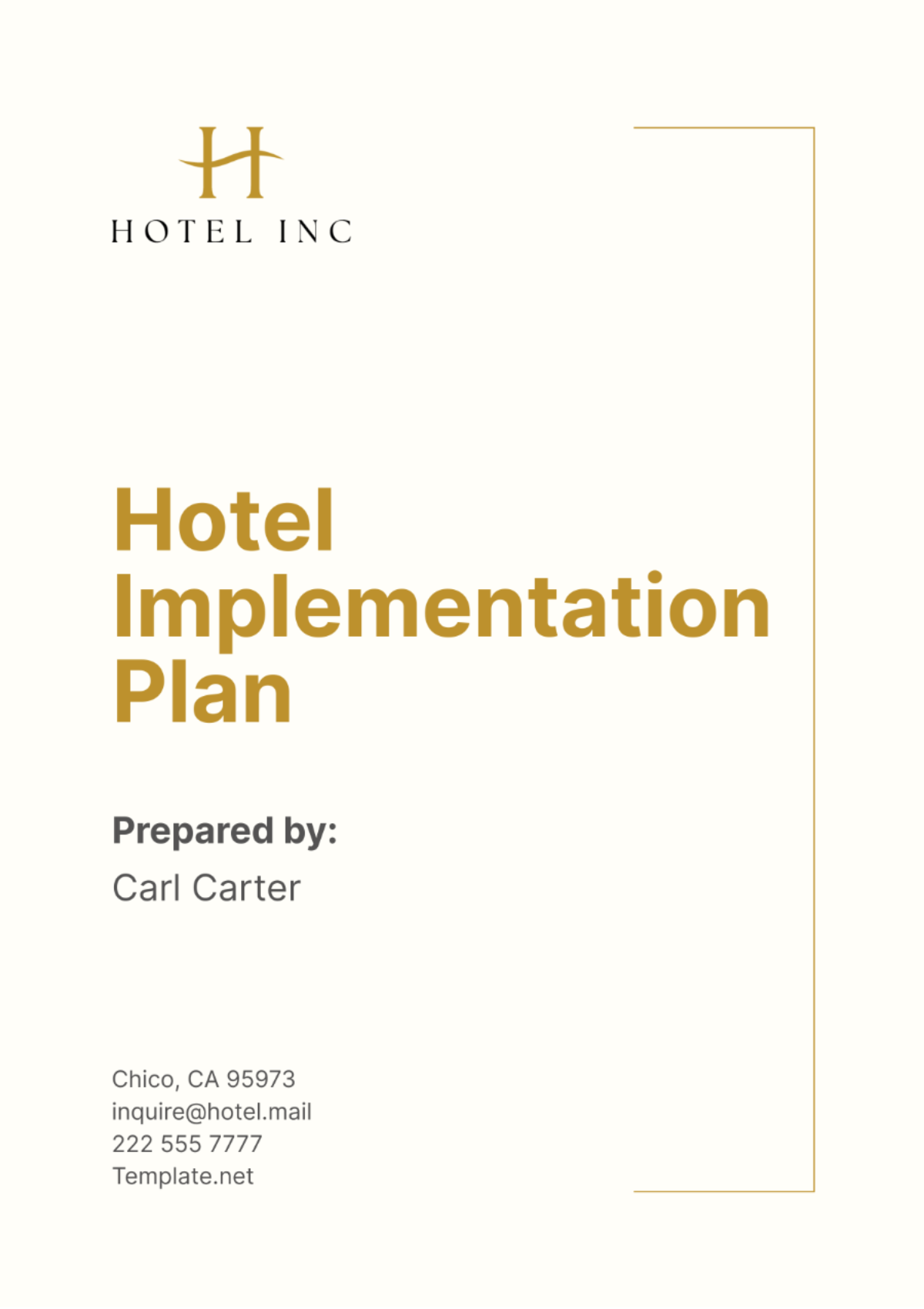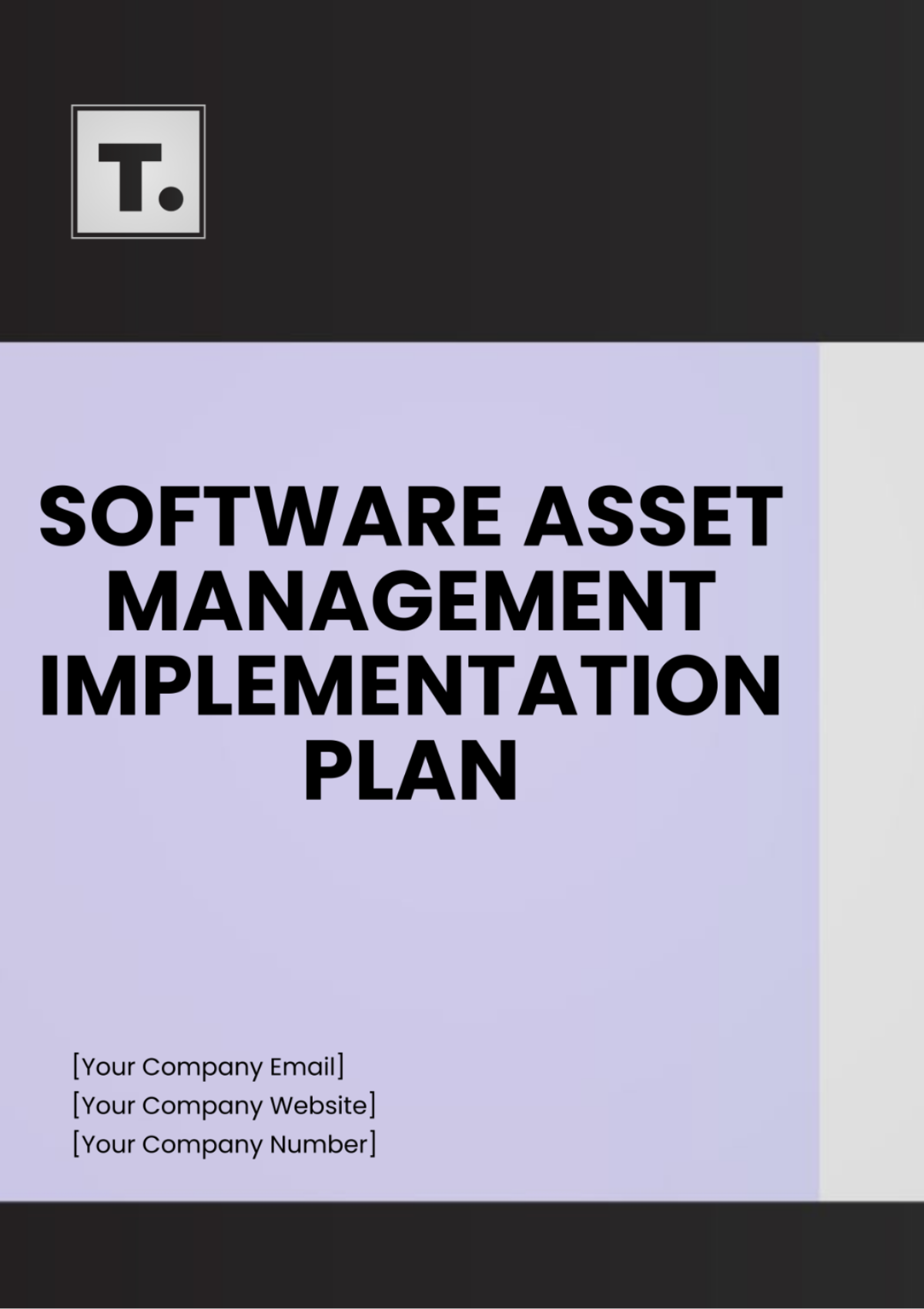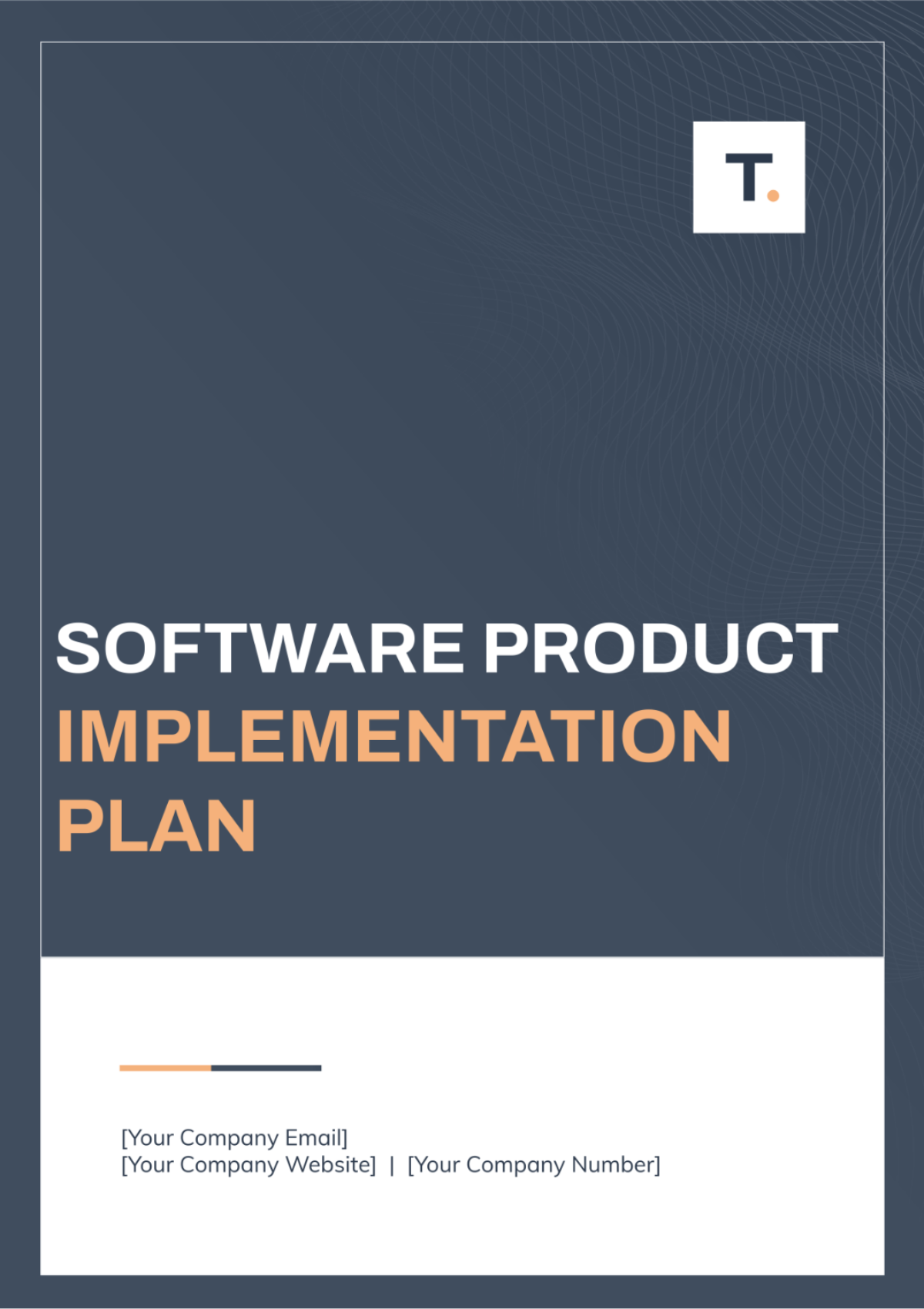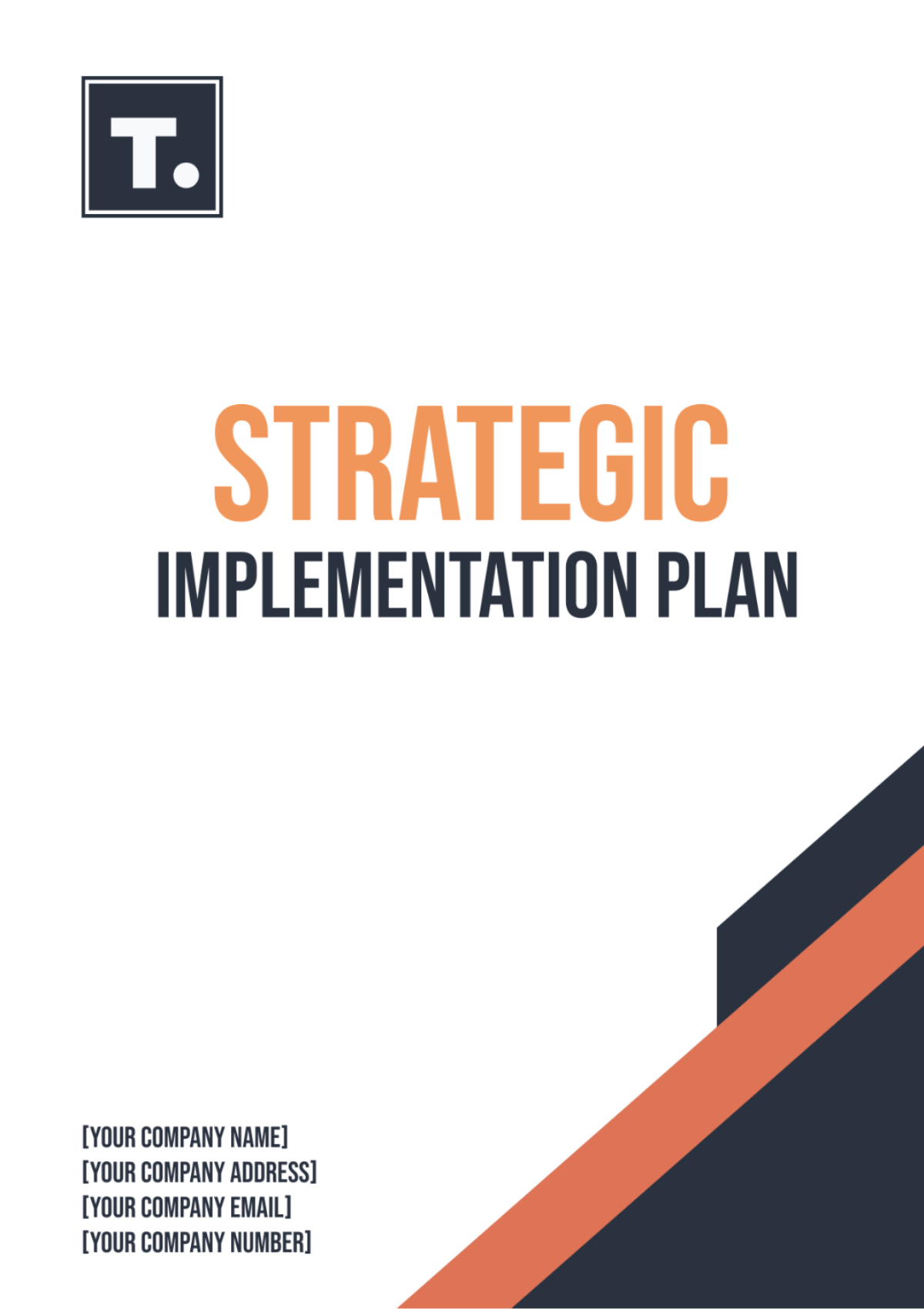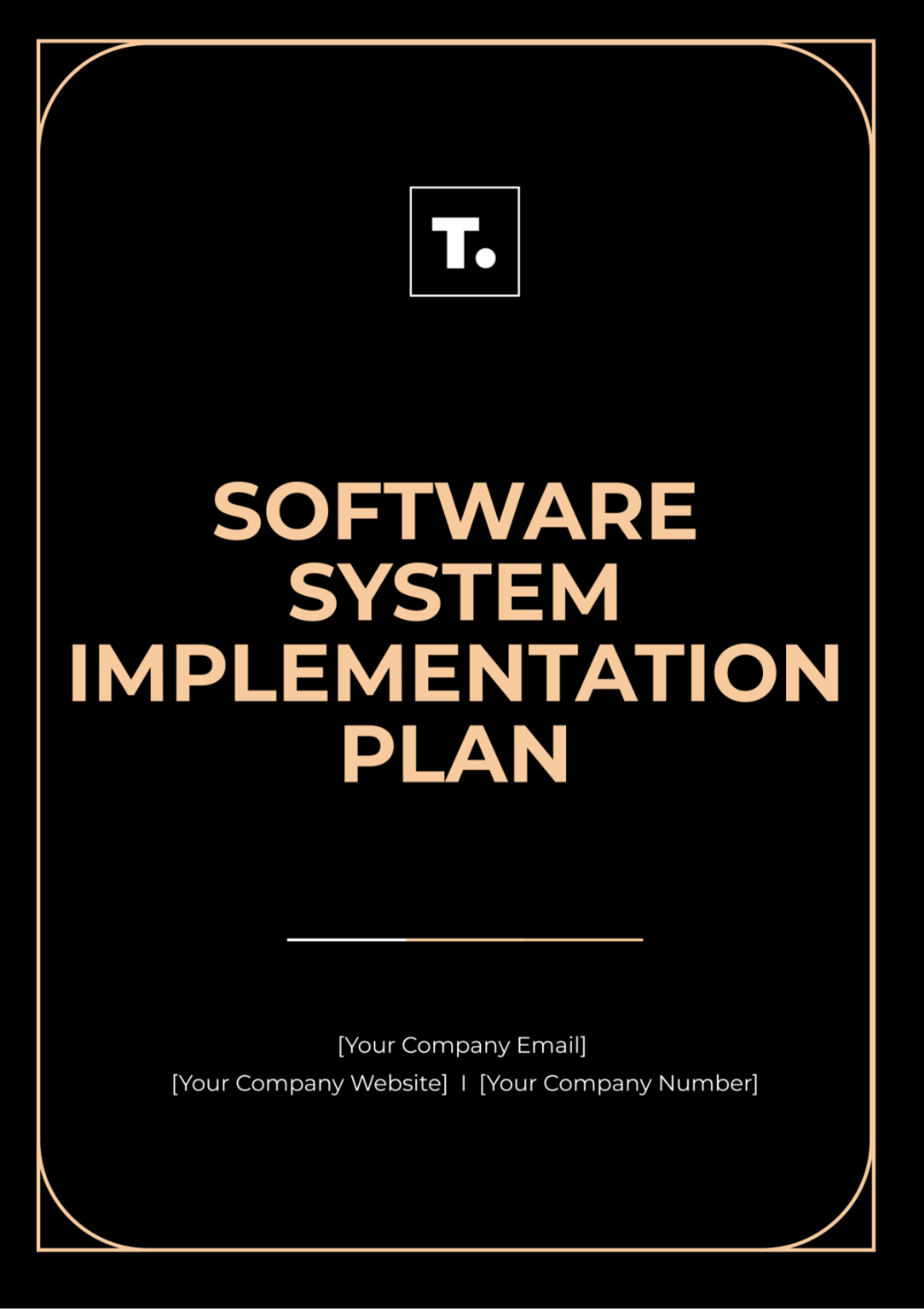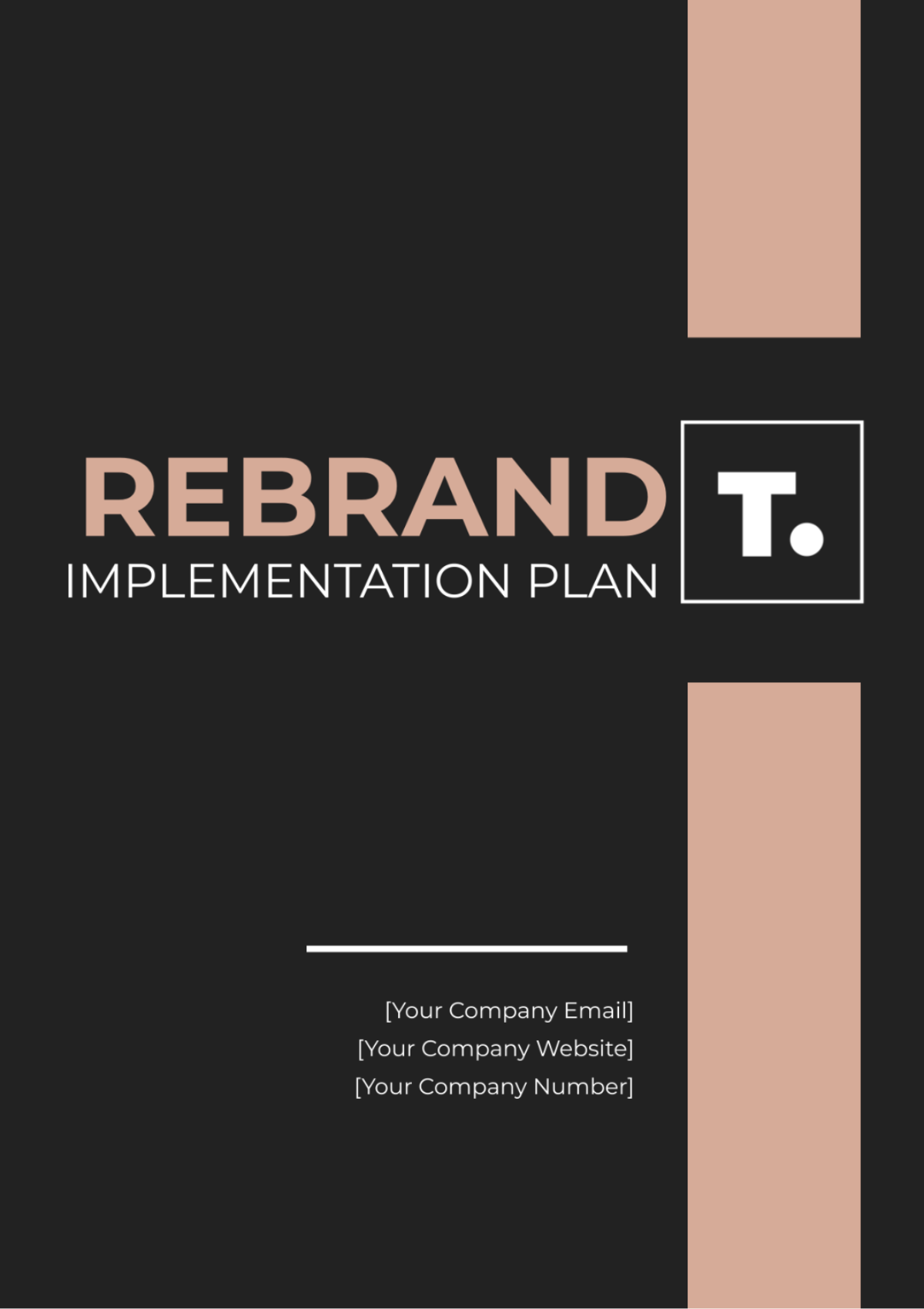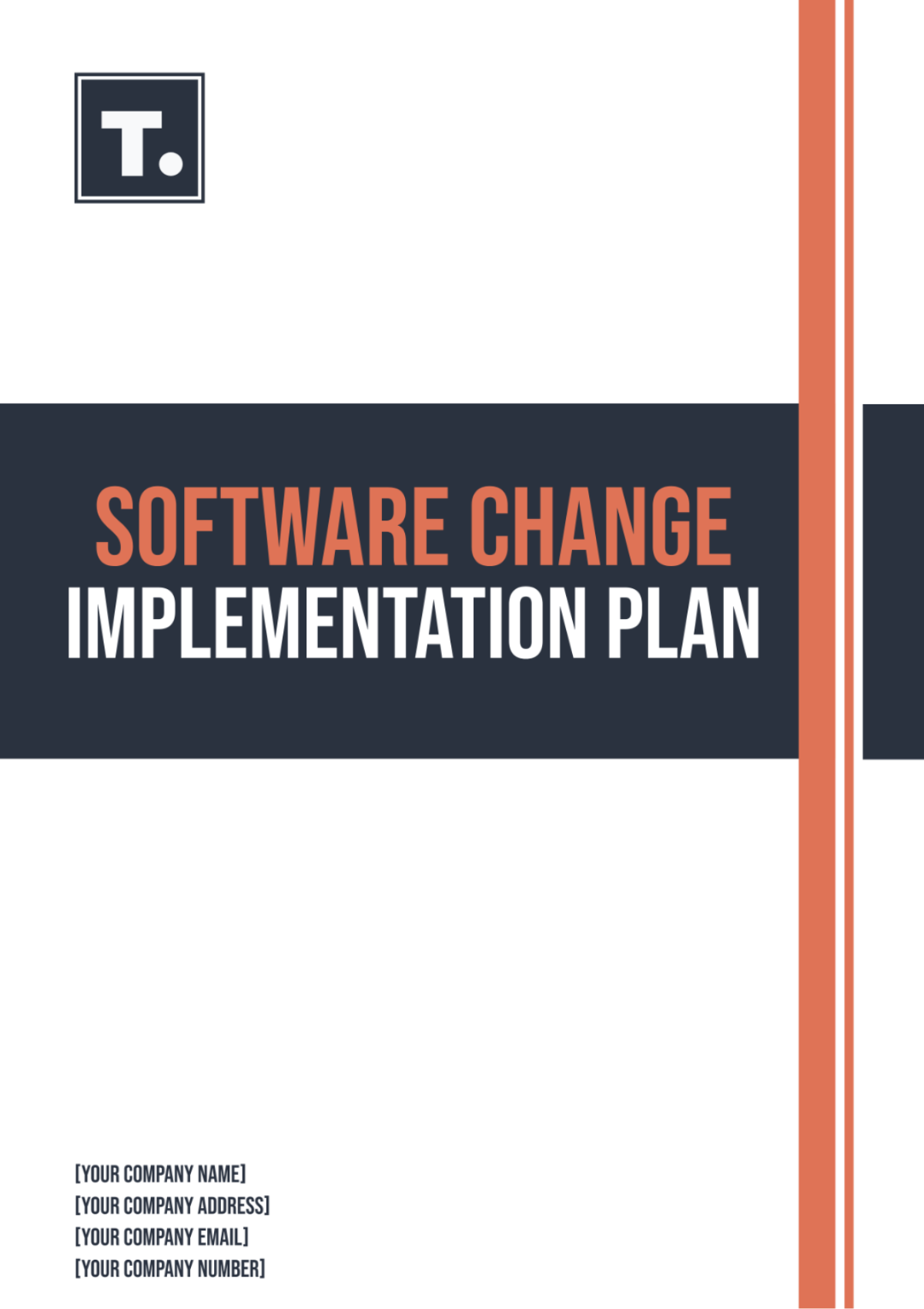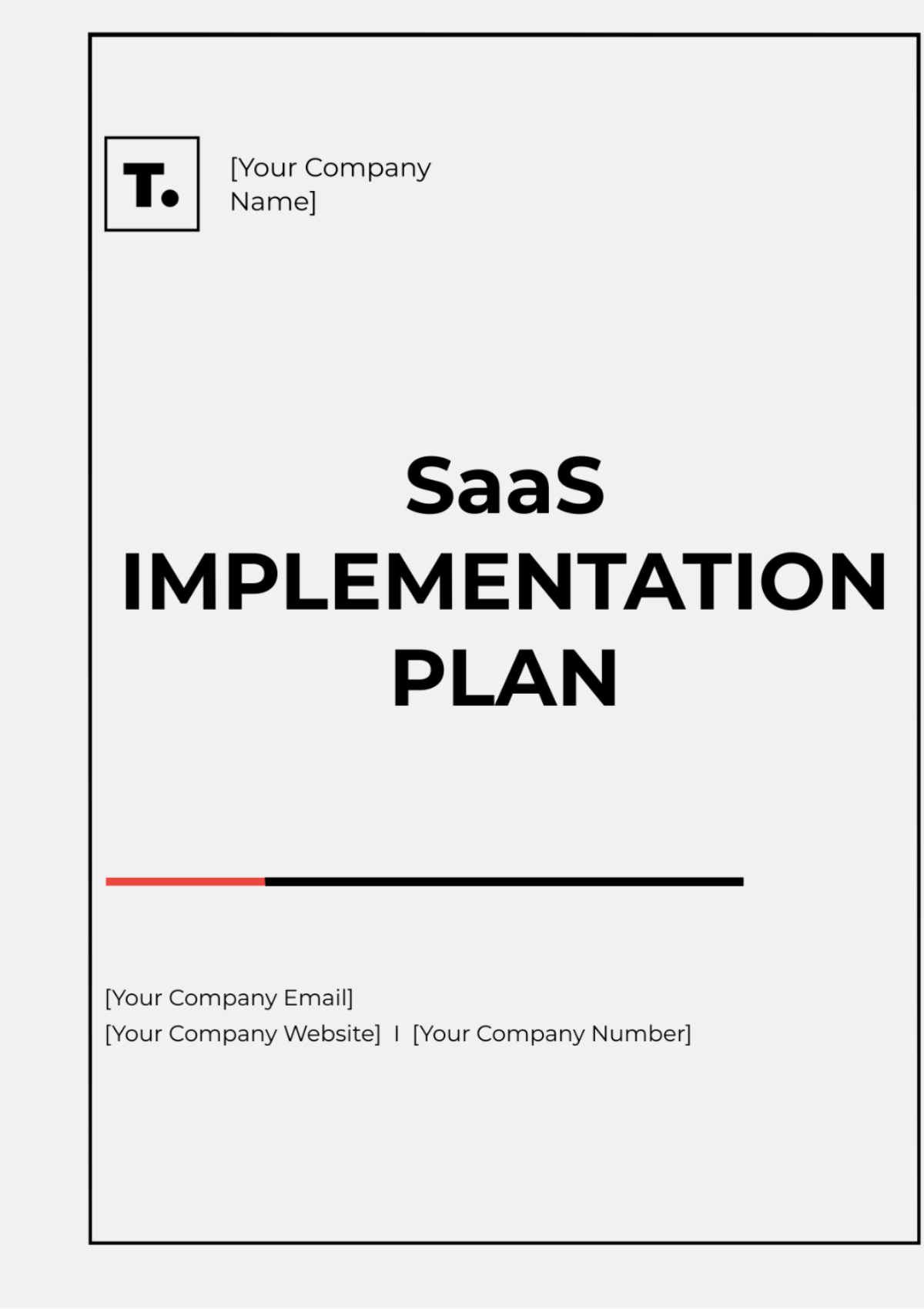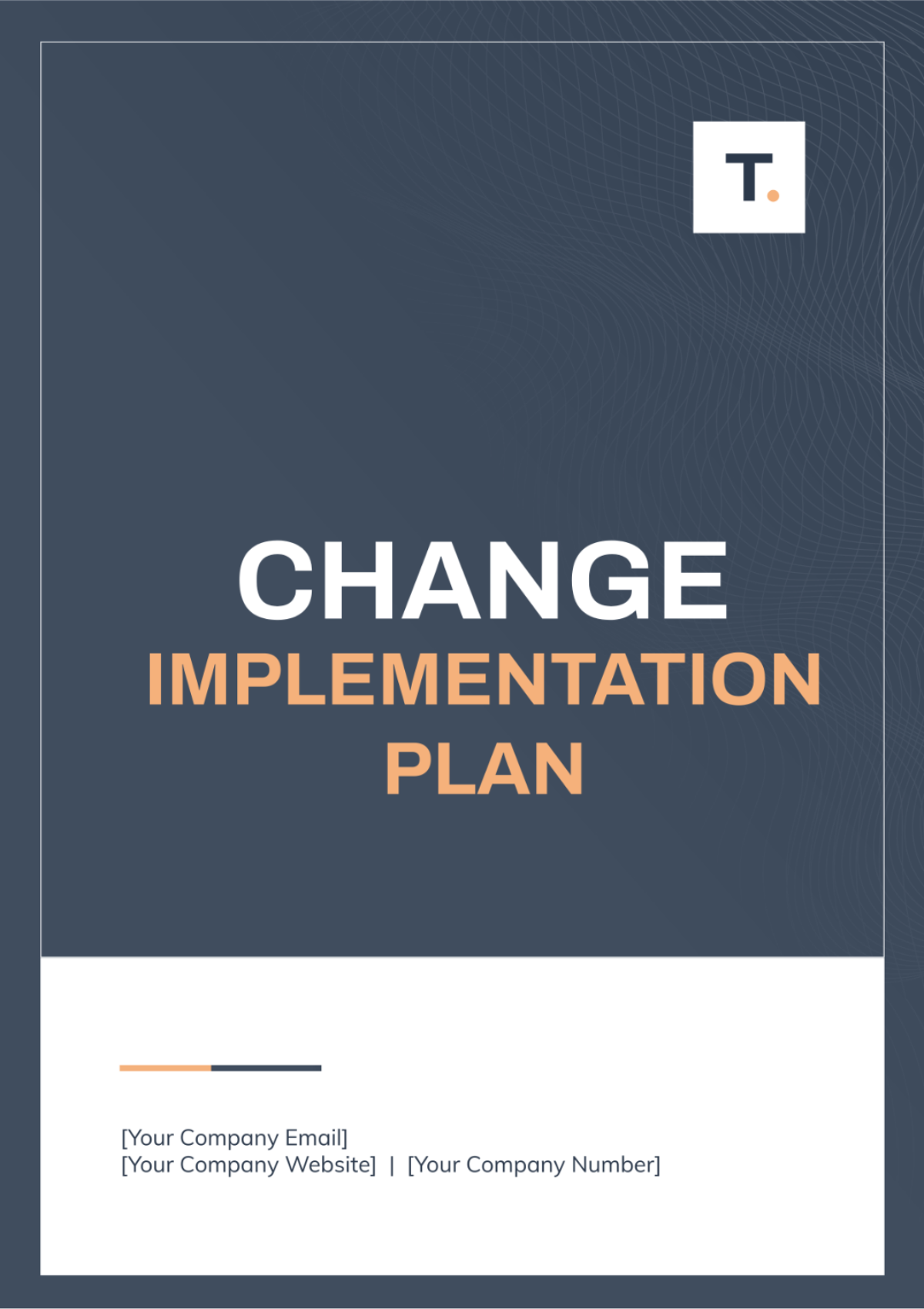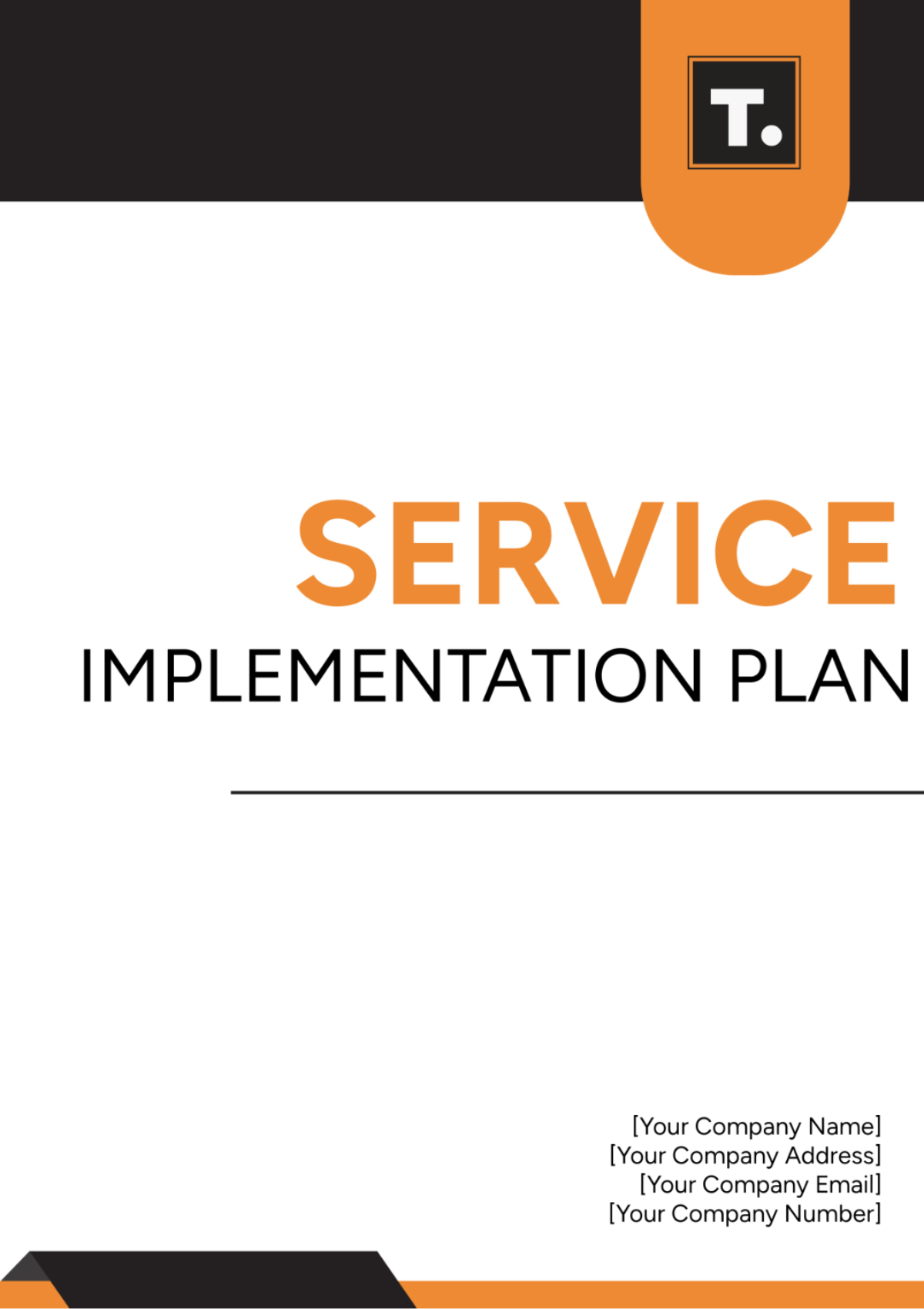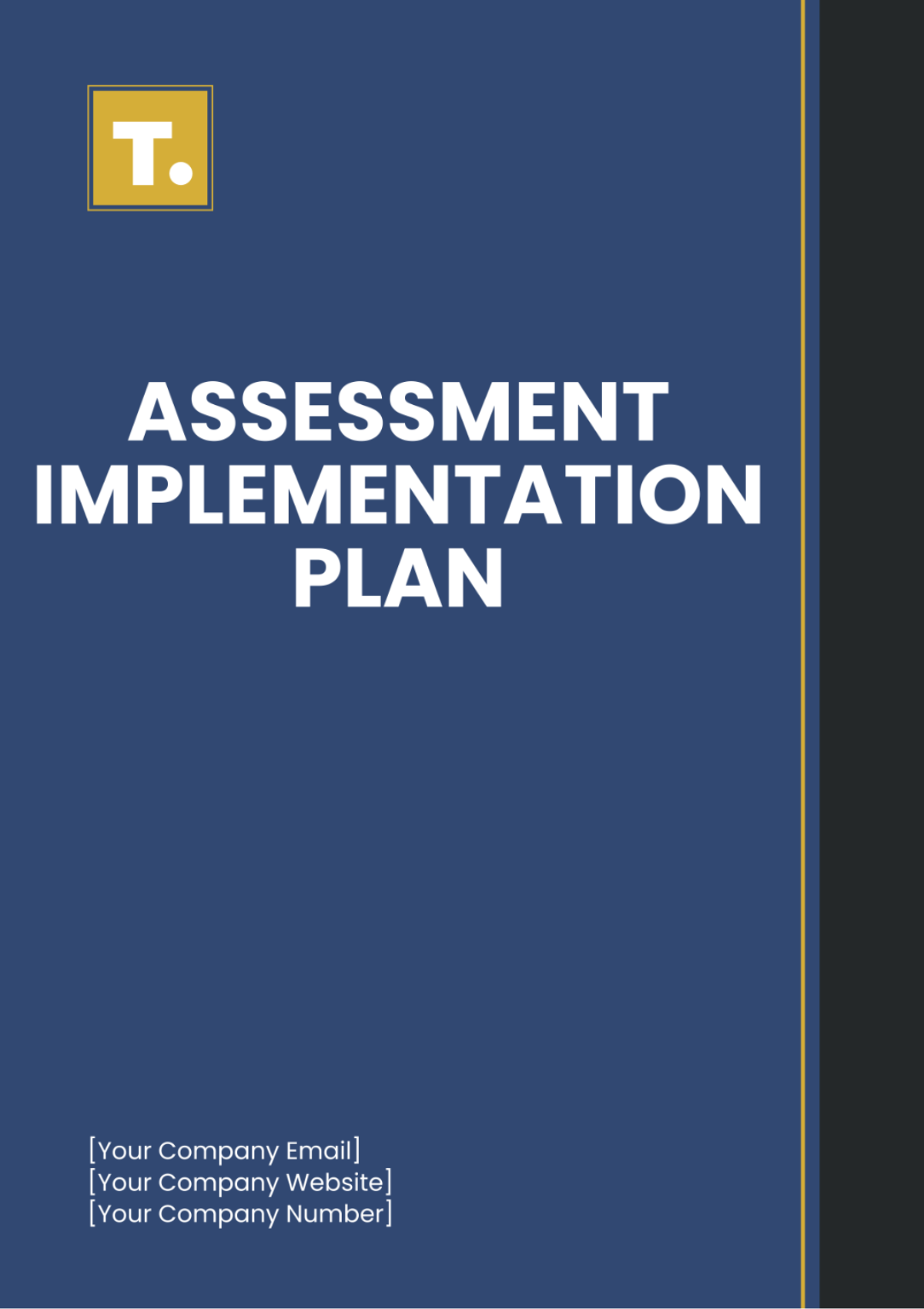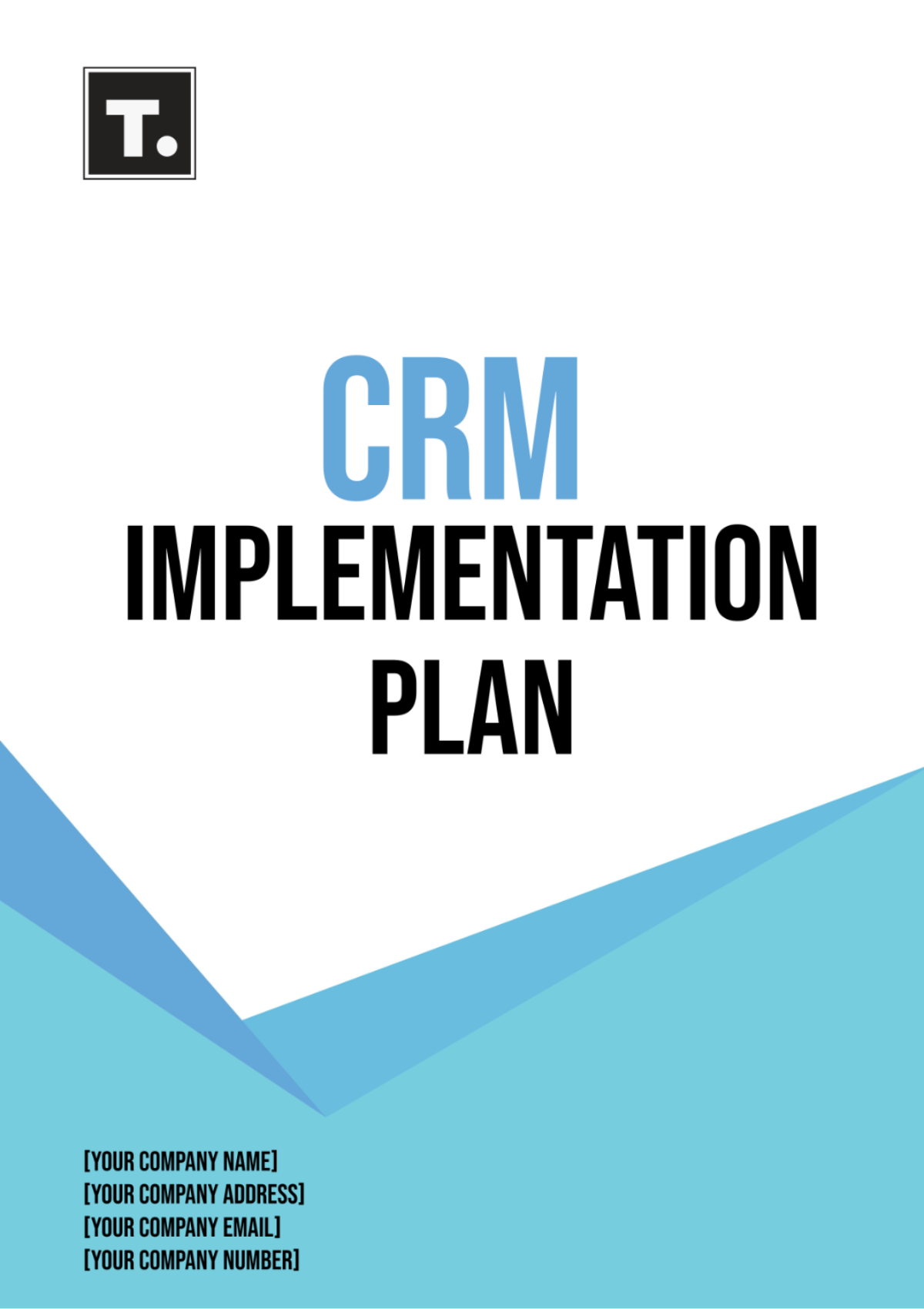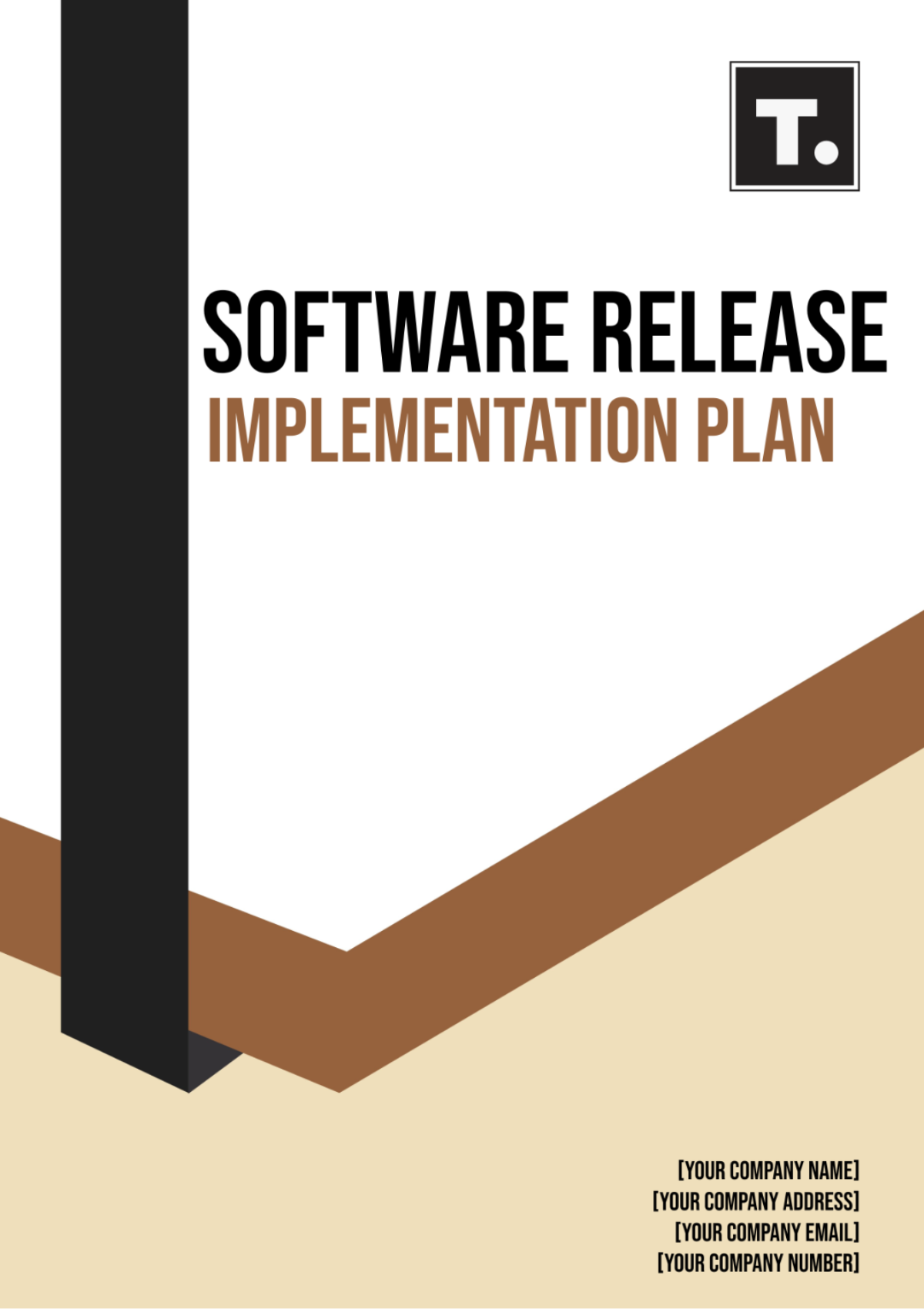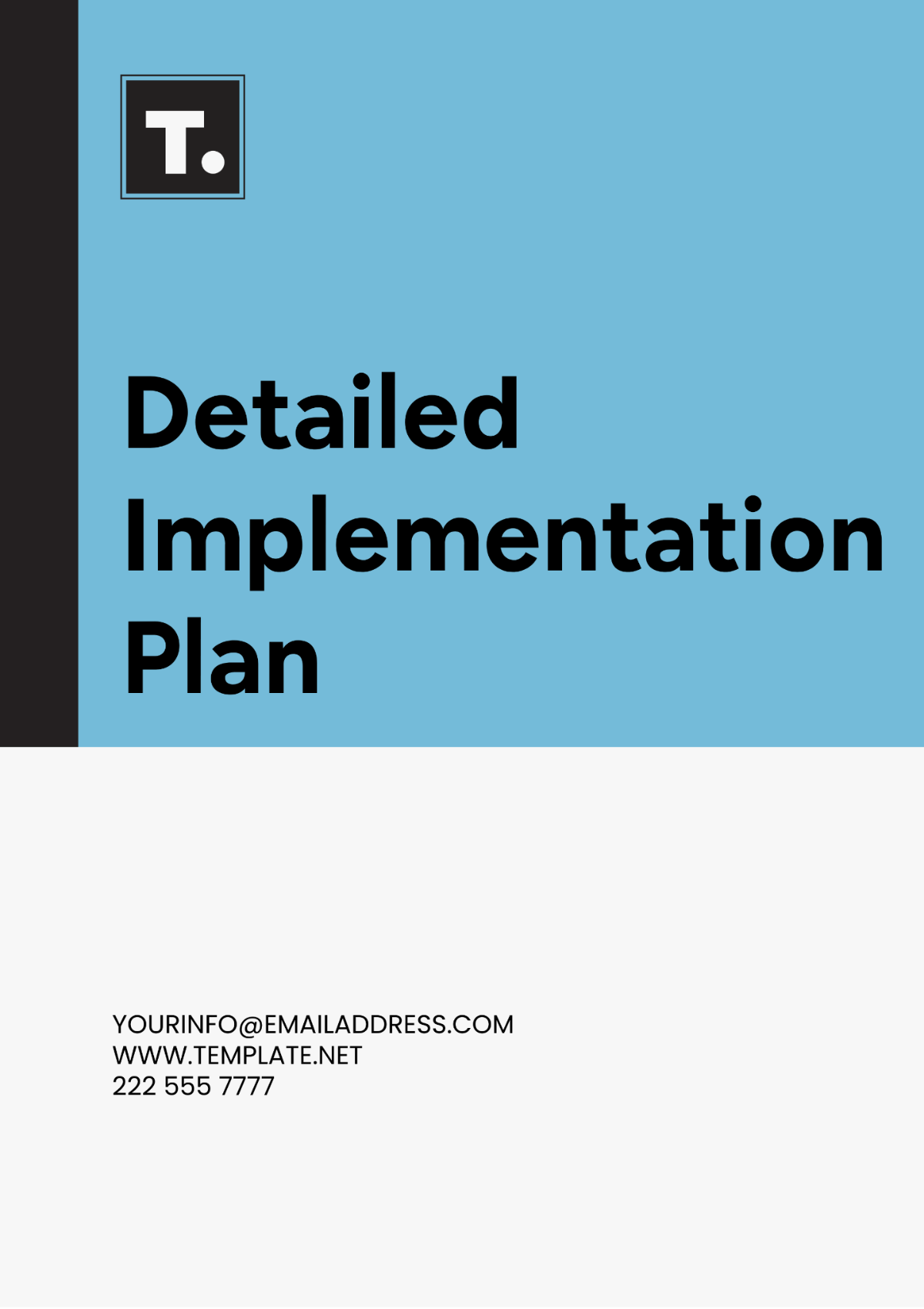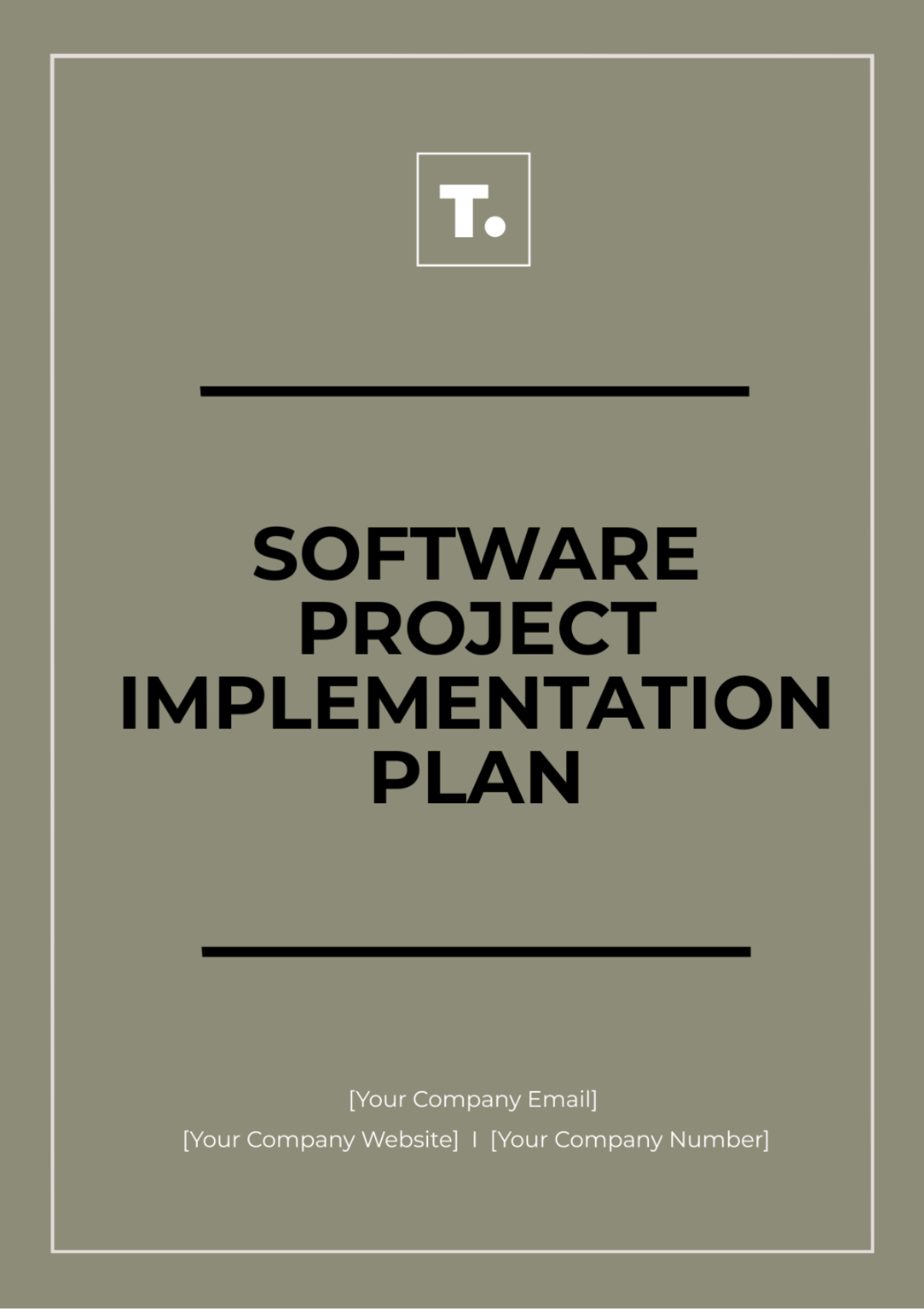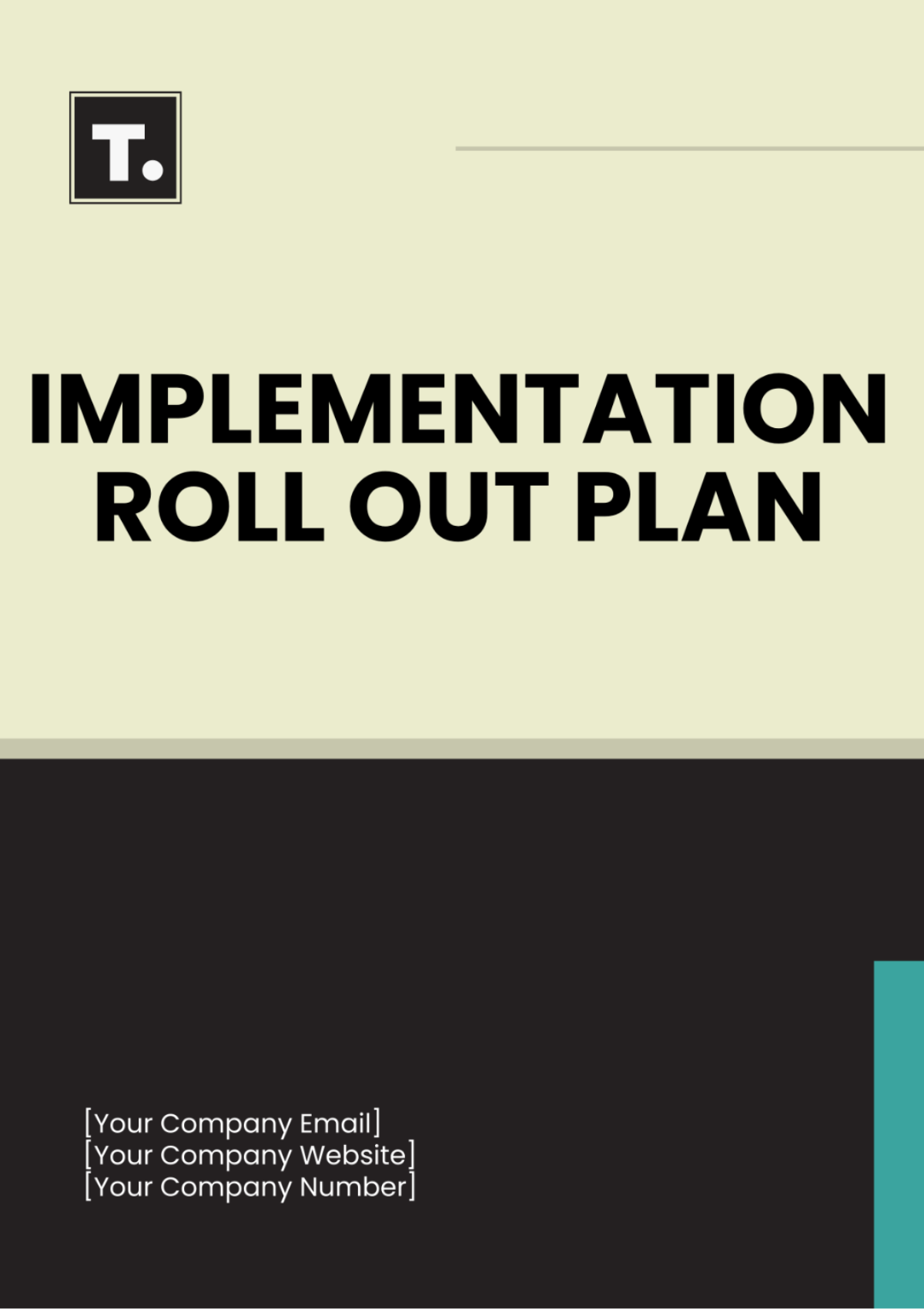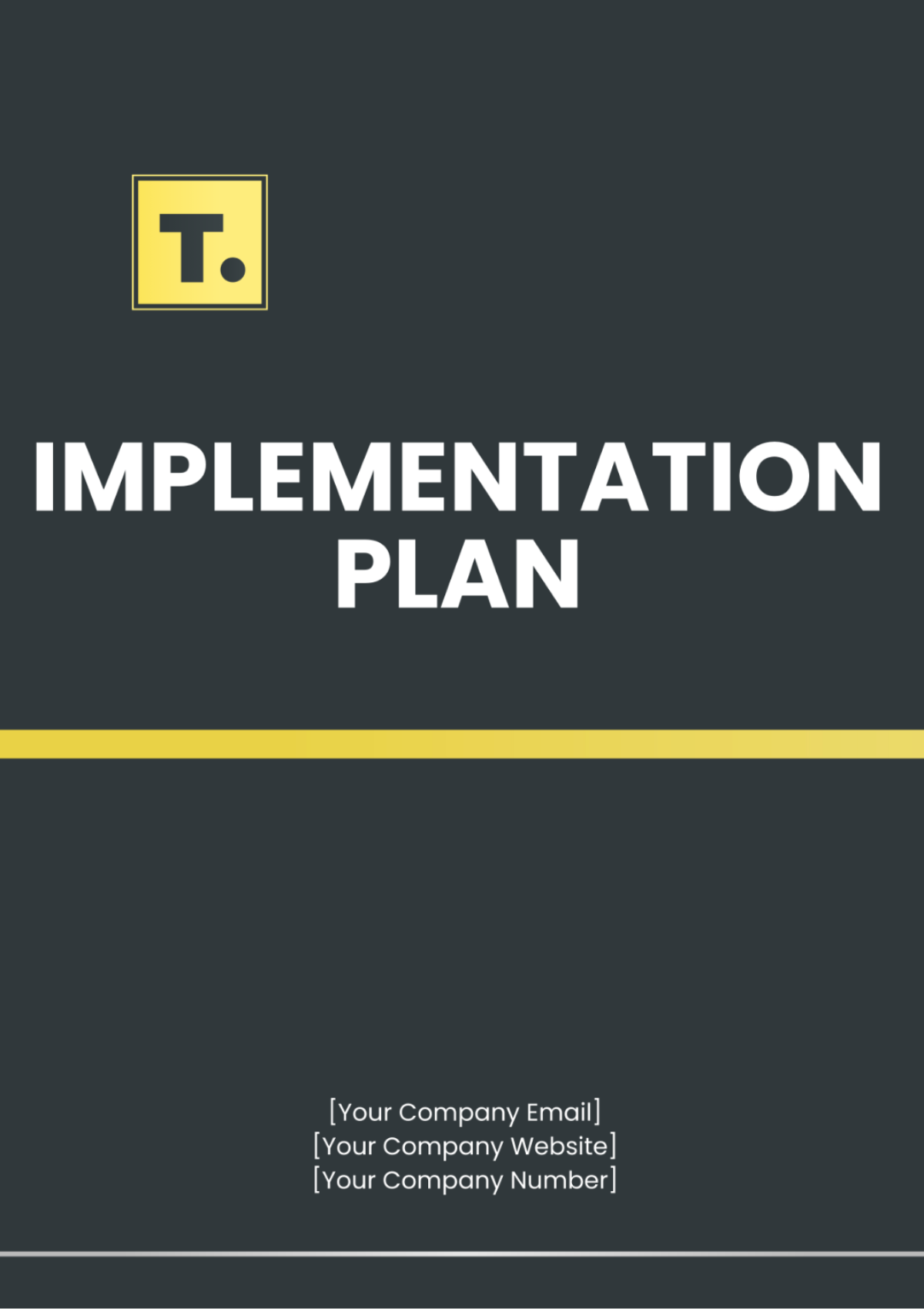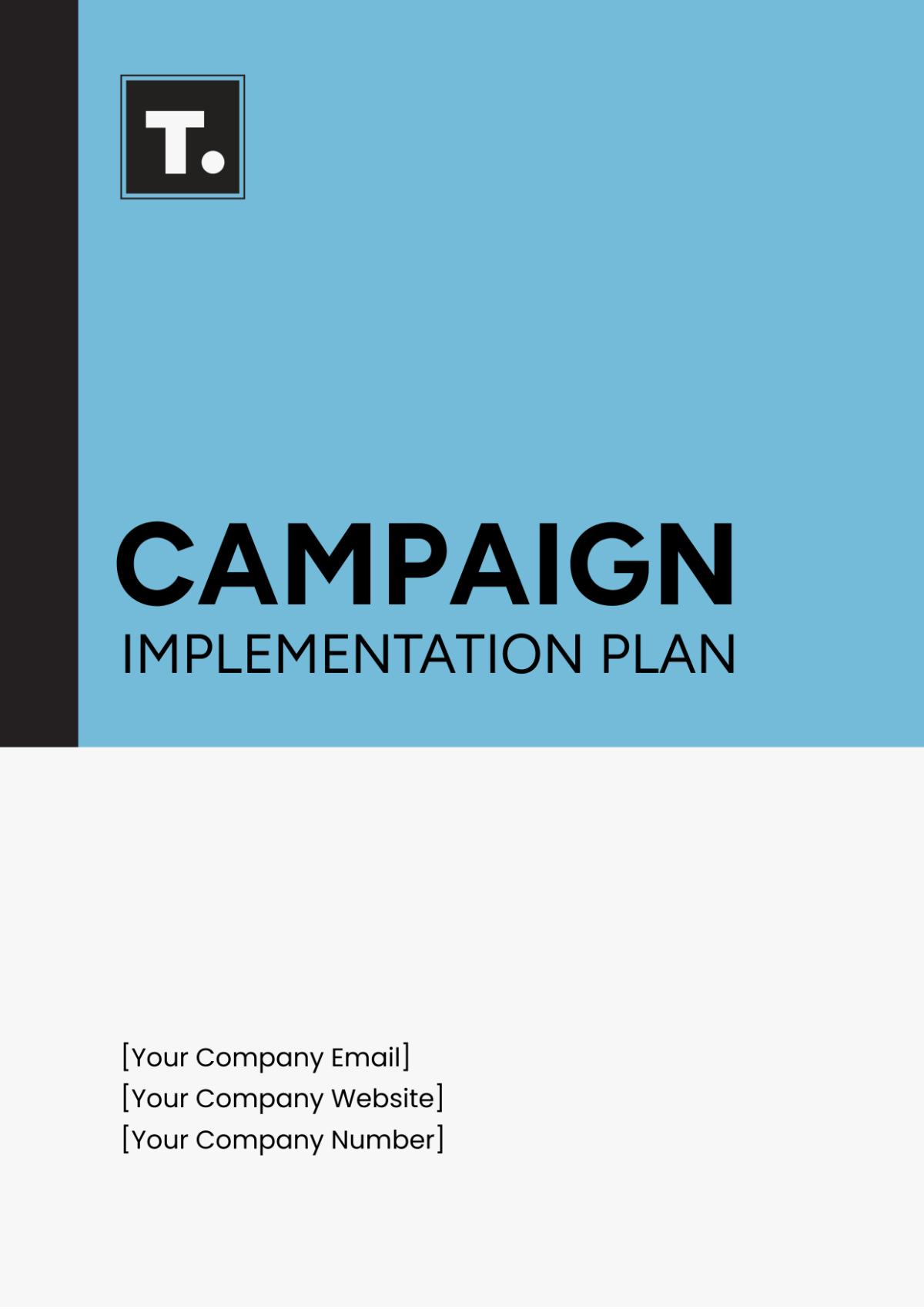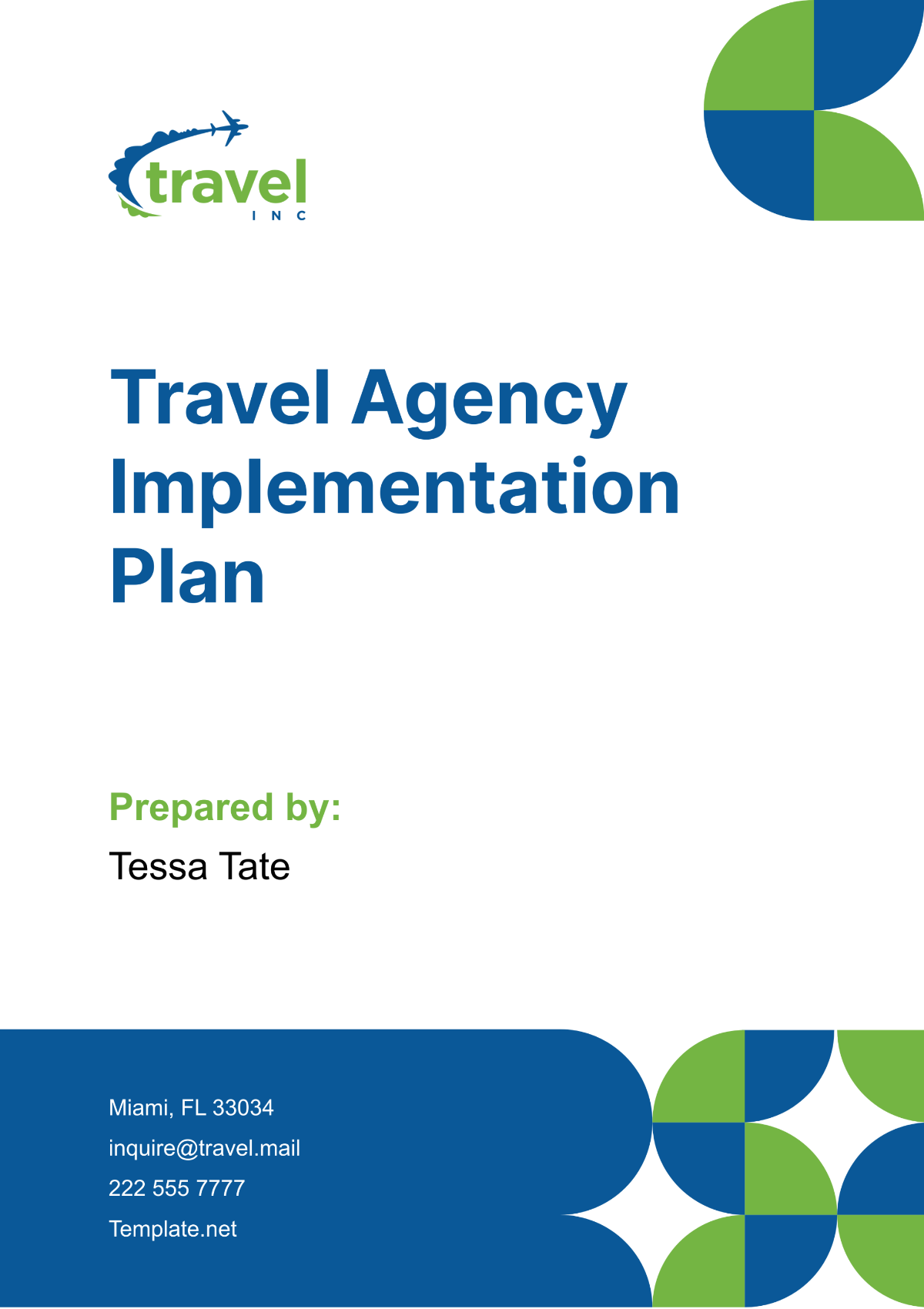CRM Implementation Plan
Prepared by: [YOUR NAME]
Contact Email: [YOUR EMAIL]
I. Executive Summary:
This CRM Implementation Plan is designed to optimize sales processes, lead management, and opportunity tracking at [YOUR COMPANY NAME]. It provides a roadmap from initial planning to post-implementation support, ensuring a comprehensive approach to deployment. Through this plan, we aim to enhance operational efficiency and drive growth by leveraging CRM technology to its fullest potential.
II. Company Information
[YOUR EMAIL] | |
Website | [YOUR COMPANY WEBSITE] |
Social Media Profiles | [YOUR COMPANY SOCIAL MEDIA] |
III. Project Overview
Objective:
The primary objective of this project is to automate and streamline the sales process, efficiently manage leads, and effectively track opportunities within [YOUR COMPANY NAME]. By implementing a CRM system, we aim to enhance productivity, improve data visibility, and ultimately drive sales growth.
Scope:
The scope of this project includes the implementation of CRM across all sales departments of [YOUR COMPANY NAME]. This encompasses integrating CRM functionalities tailored to the specific needs and workflows of each department, ensuring a cohesive and unified approach to sales management.
Duration:
The estimated project timeline is set at 6 months, allowing for thorough planning, implementation, testing, and deployment phases. This timeline ensures adequate time for customization, data migration, training, and post-implementation support activities.
Deliverables:
Fully operational CRM system: The primary deliverable of this project is the successful implementation of a CRM system that meets the functional requirements of [YOUR COMPANY NAME]. This includes configuring CRM modules, customizing workflows, and integrating with existing systems to create a seamless sales management platform.
Training manuals and user guides: To ensure smooth adoption and usage of the CRM system, comprehensive training materials will be developed. These include training manuals, user guides, and instructional videos tailored to the needs of different user groups within the organization.
Post-implementation support and maintenance: Following deployment, ongoing support and maintenance will be provided to address any issues, optimize system performance, and facilitate continuous improvement. This includes helpdesk support, software updates, and periodic reviews to ensure the CRM system remains aligned with evolving business needs.
By delivering these key components, we aim to achieve the objectives outlined in the project overview and realize the full potential of CRM technology in enhancing sales effectiveness and driving business growth for [YOUR COMPANY NAME].
IV. Stakeholder Analysis
Stakeholder | Role | Responsibilities | Contact |
|---|---|---|---|
Project Sponsor | Executive Oversight | Provide funding and strategic direction | [YOUR CONTACT INFORMATION] |
Project Manager | Project Lead | Manage project execution and coordination | [YOUR CONTACT INFORMATION] |
Sales Team | End Users | Provide requirements and feedback | [YOUR CONTACT INFORMATION] |
IT Department | Technical Support | Provide technical guidance and support | [YOUR CONTACT INFORMATION] |
V. Project Phases
1. Planning Phase
Conduct a thorough needs assessment to understand the requirements of the sales teams and other stakeholders.
Analyze existing sales processes and systems to identify areas for improvement and integration with the CRM.
Define the project scope and objectives, outlining the desired outcomes and success criteria.
Create a detailed project plan and timeline, identifying key milestones, tasks, and resources required for successful implementation.
2. Design Phase
Design the architecture and workflow of the CRM system based on the requirements identified in the planning phase.
Define a data migration strategy to ensure seamless transition of existing data into the new CRM system.
Customize CRM features and functionalities to align with the specific needs and workflows of [YOUR COMPANY NAME].
3. Development Phase
Build and configure CRM modules according to the design specifications developed in the previous phase.
Develop data migration scripts to facilitate the transfer of data from legacy systems to the new CRM platform.
Integrate the CRM system with existing systems and third-party applications to ensure smooth data flow and interoperability.
4. Testing Phase
Conduct comprehensive unit testing to ensure that each component of the CRM system functions as intended.
Perform integration testing to verify the interaction between different modules and systems.
Facilitate user acceptance testing (UAT) to validate the system against user requirements and expectations.
Resolve any identified issues and bugs to ensure the CRM system meets quality standards before deployment.
5. Deployment Phase
Execute data migration activities, transferring relevant data from legacy systems to the new CRM platform.
Deploy the CRM system in a live environment, ensuring minimal disruption to ongoing sales operations.
Provide end-user training and documentation to familiarize users with the new system and maximize adoption.
6. Post-Implementation Support
Monitor the performance of the CRM system to identify any issues or areas for improvement.
Provide ongoing technical support to address user queries, troubleshoot issues, and optimize system performance.
Collect and analyze user feedback to identify opportunities for enhancements and updates to the CRM system, ensuring it continues to meet the evolving needs of [YOUR COMPANY NAME].
VI. Risk Management
Risk | Impact | Mitigation Strategy | Owner |
|---|---|---|---|
Data Migration Issues | High | Create a thorough data migration plan and conduct extensive testing | IT Department |
User Resistance | Medium | Provide comprehensive training and ongoing support | Project Manager |
Scope Creep | Medium | Establish clear project scope and approval processes | Project Sponsor |
VII. Conclusion
The implementation of CRM at [YOUR COMPANY NAME] marks a pivotal moment in our sales strategy, promising to revolutionize lead management and opportunity tracking. Through meticulous planning, stakeholder engagement, and proactive risk management, we are poised to realize substantial benefits and drive transformative change across our organization.
